Search results for
#IndiaAdd more filters
#Adaptive Management #Benin #Burkina Faso #English Publication #Ethiopia #Extension Services #Gender #India #Info graph #Kenya #Land Tenure #Partners #Publications #Publications en français #Social InnovationFirst Governor’s Day with Farmers, Kakamega County, Kenya
The Governor’s Day with Farmers is an initiative by the Kakamega County Government, the Kenya National Farmers’ federation (KENAFF), the Kakegma County Farmers Association (KACOFA), Shibuye Community Health Workers and the Kakamega Youth Agripreneurs. The Governor’s Day with Farmers aims to bring farmers and agricultural policymakers closer together. It provides a platform through which farmers can directly interact with the county’s top policymakers, contribute to the design of county agricultural programmes and projects, and provide feedback on performance of the sector in relation to farmer support, especially for the most vulnerable.

Transformer les systèmes alimentaires du bas vers le haut
Comment des innovations sociales développées localement peuvent renforcer des environnements propices à la restauration du sol
White Paper July 2022Transforming food systems from the bottom up
This white paper presents give key messages on food systems transformation, with a focus on locally developed social innovations.
White Paper July 2022Securing land access for smallholders
This info briefs outlines how a community-driven land lease guidelines can secure land access for smallholder farmers in western Kenya
Info brief July 2022Community-led Land Lease Guidelines – Isukha West Ward, Shinyalu Sub-County, Kakamega County
This booklet presents community-led land lease guidelines for Isukha West Ward. The booklet outlines how the Isukha West community conducted the process and the land lease guidelines.
Technical Guide 2016The Tem Sesiabun Gorado model: A farmer-led knowledge diffusion approach to promote sustainable agriculture in northern Benin
This guide is designed to facilitate understanding, and implementation of the Tem Sesiabun Gorado (TSG) model, a farmer-led knowledge diffusion approach.
Technical Guide 2020Modèle Tem Sesiabun Gorado: Une approche de partage des connaissances sur les bonnes pratiques agricoles
Ce guide est conçu pour faciliter la compréhension et la mise en œuvre du modèle de diffusion Tem Sesiabun Gorado (modèle TSG). Le modèle TSG est une approche de partage de connaissances et de compétences entre agriculteurs.
Guidelines 2020The Chamwada Report: Land Leasing in Kenya
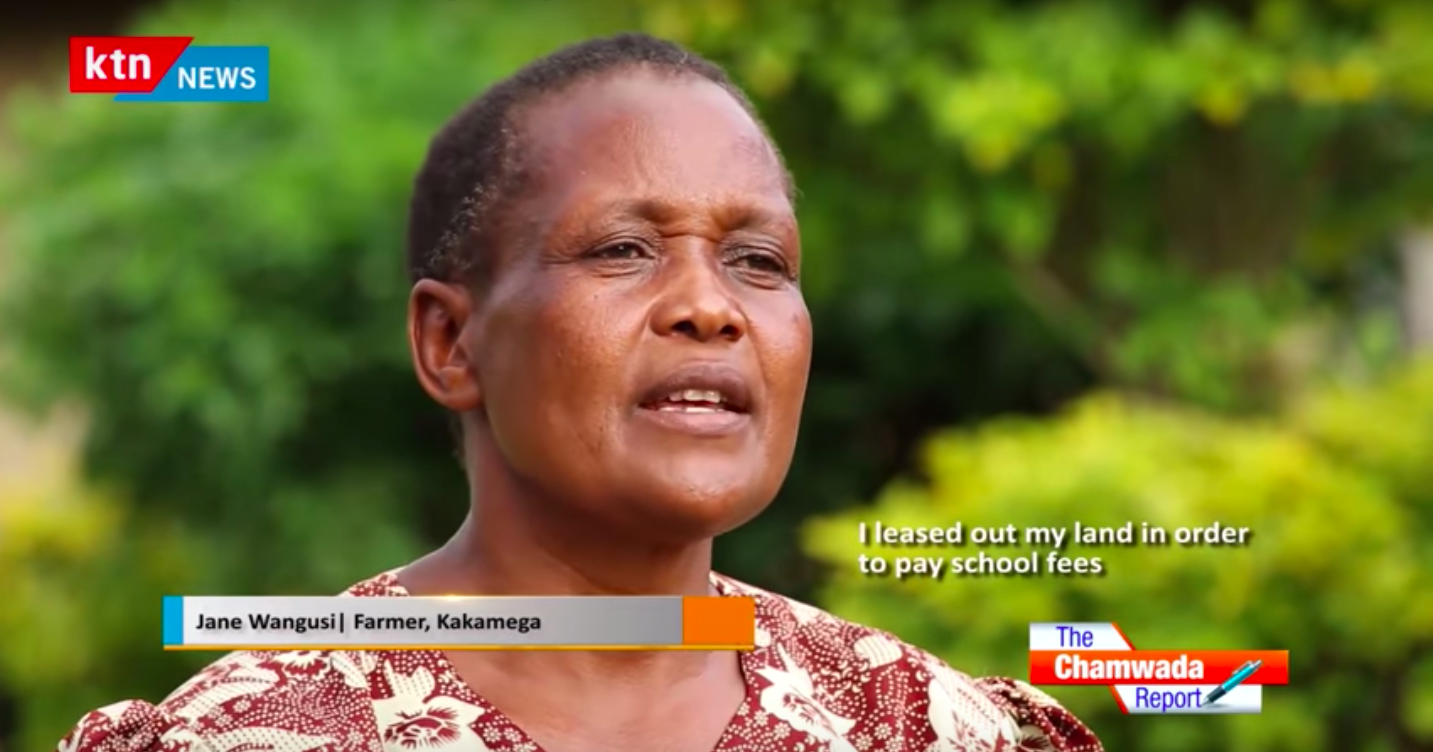
Better Save Soil (French version)
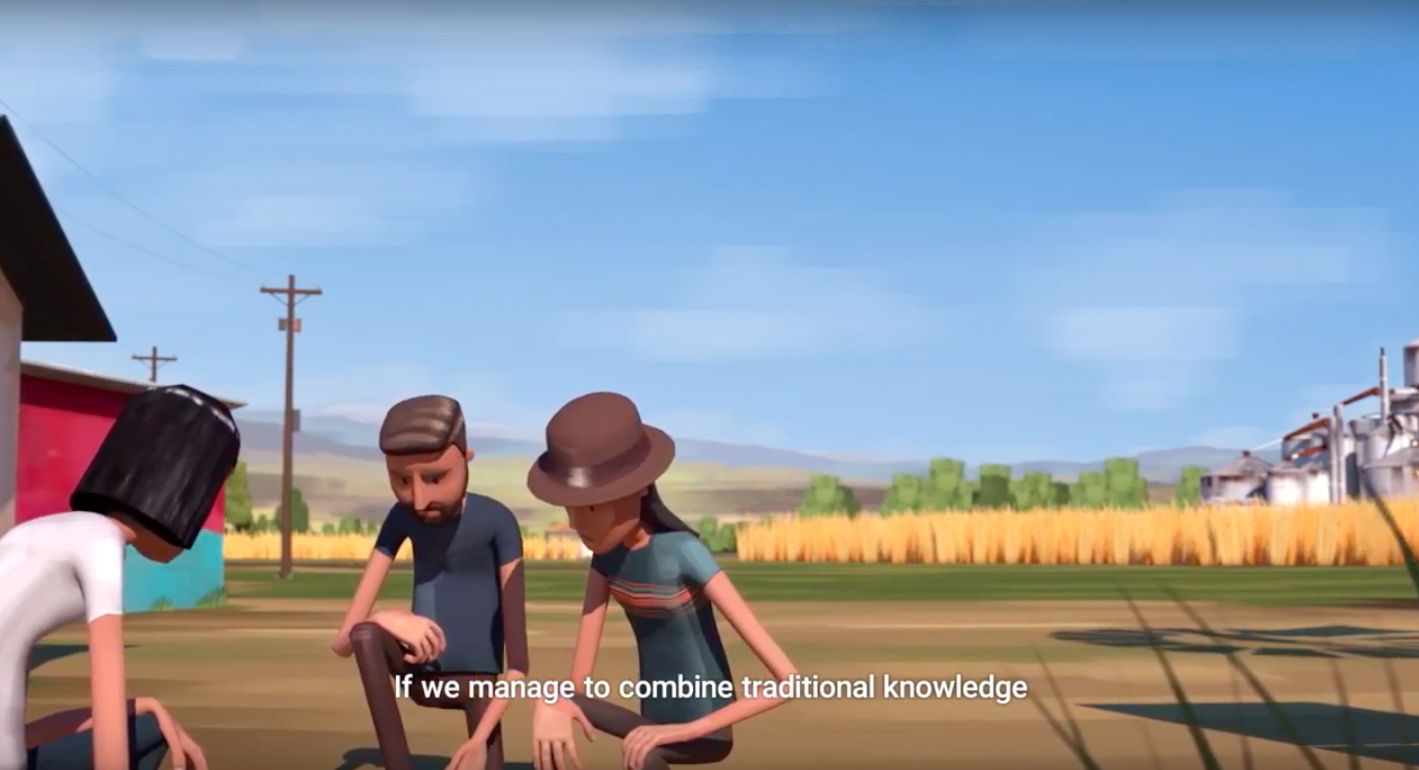
Better Save Soil (English version)

Land Access in Western Kenya

Adaptive management to align sustainable land management with local realities
Sustainable Land Management (SLM) technologies are only one part of the story to stop land degradation: it´s time to think beyond technologies and their application on individual fields. Adaptive management can help steer and adjust SLM programmes in alignment with farmers’ needs and local realities.
Read more
Hunger and malnutrition
Hunger and malnutrition infographic: 1 out of 9 people go hungry. Soil degradation causes on average 8% yield reductions per year in Sub-Saharan Africa.
Our Partners: Groupe de Recherche et d’Action sur le Foncier

Why we need to talk about soil
Soil may be the most important resource we don´t talk about. It fulfils the vital role of storing and filtering water and holding nutrients and microorganisms. Soil forms the basis for 95% of global food production and stores more carbon than all plants above the surface of the earth.
Read more
Water filter and regulation
Soils regulate surface runoff and decrease the risk of flooding. Soils filter chemicals, pollutants and bacteria from water.

Climate and carbon
Globally, the top 30 cm of soil stores approx. 680 billion tonnes of carbon. Even more than the amount of carbon stored by vegetation: 560 billion tonnes. Restoring degraded soils can remove up to 63 billion tonnes of carbon from the atmosphere.

Loss of nutrients
Each year we lose 12–22 million tonnes of organic phosphorus and 23–24 million tonnes of nitrogen are lost due to erosion. 2 billion people suffer from nutrient deficiencies.

Poverty and loss of livelihoods
1.3 billion smallholders farm on degraded land. In Africa, 20 million tonnes of grain per year are lost due to erosion. 84% of all farms in the world are less than 2 hectares in size.

The Economic Dimension of Soil Degradation
The cost of inaction against soil erosion in Africa is equivalent to 127 billion USD per year. Acting against soil erosion on cropland would create benefits of about 62.4 billion USD per year in 42 African countries.

Soil biodiversity
Soils are home to genetic and biodiversity.
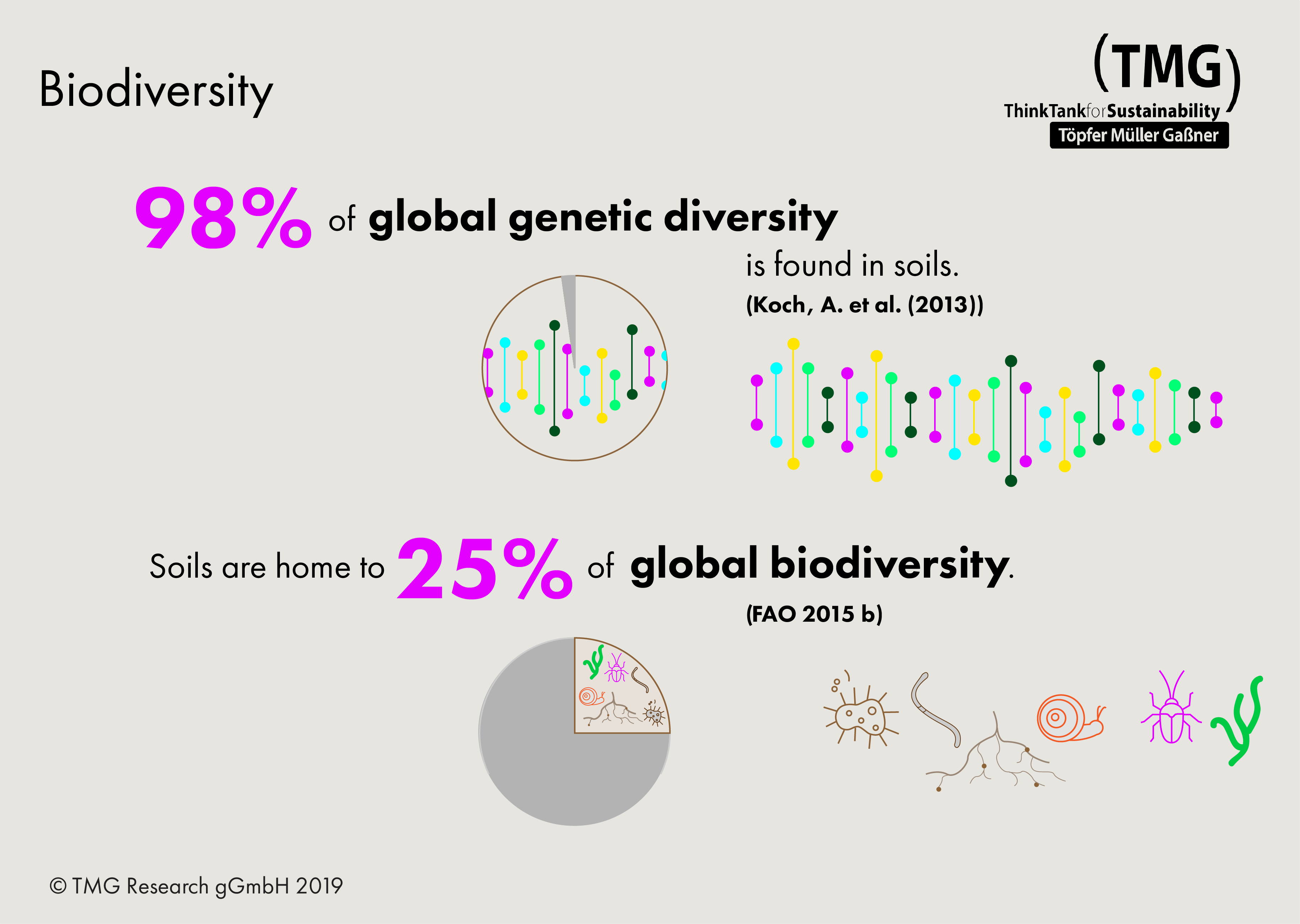
Food production and nutrition
Fertile soils contain all major (N, P, K) and minor (Ca, Mg, S, Fe, Zn, Cu, B, Mo, Ni) nutrients required to produce healthy food.
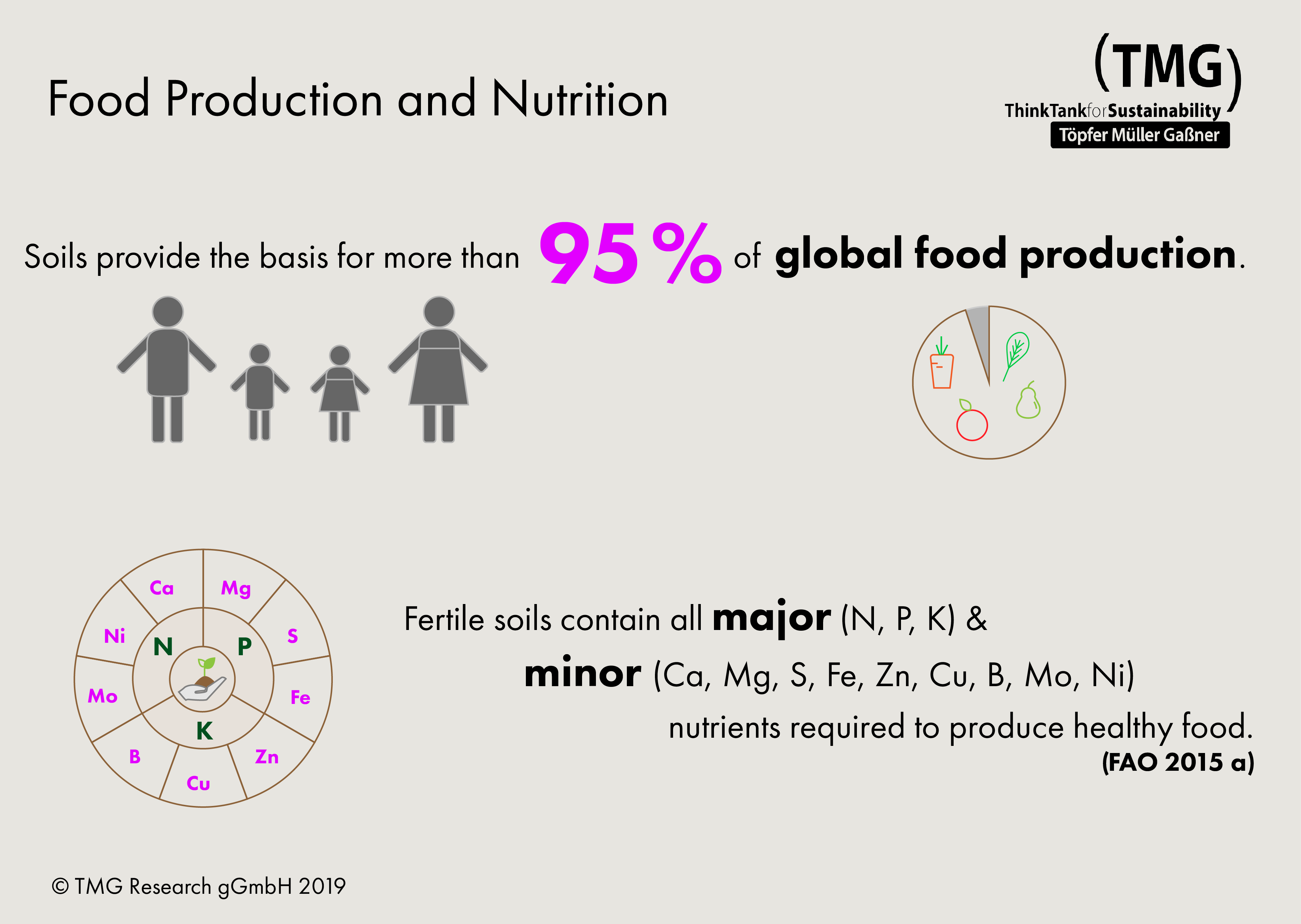
India
TMG Research and the civil society organisation Foundation for Ecological Security (FES) worked together to identify barriers to sustainable land management (SLM) in Mandla in a participatory research process.
Read more
About – Our partners and where we work
We support the implementation of the global programme Soil Protection and Rehabilitation for Food Security by the Deutsche Gesellschaft für Internationale Zusammenarbeit (GIZ) in Benin, Burkina Faso, Ethiopia, India and Kenya.
Read more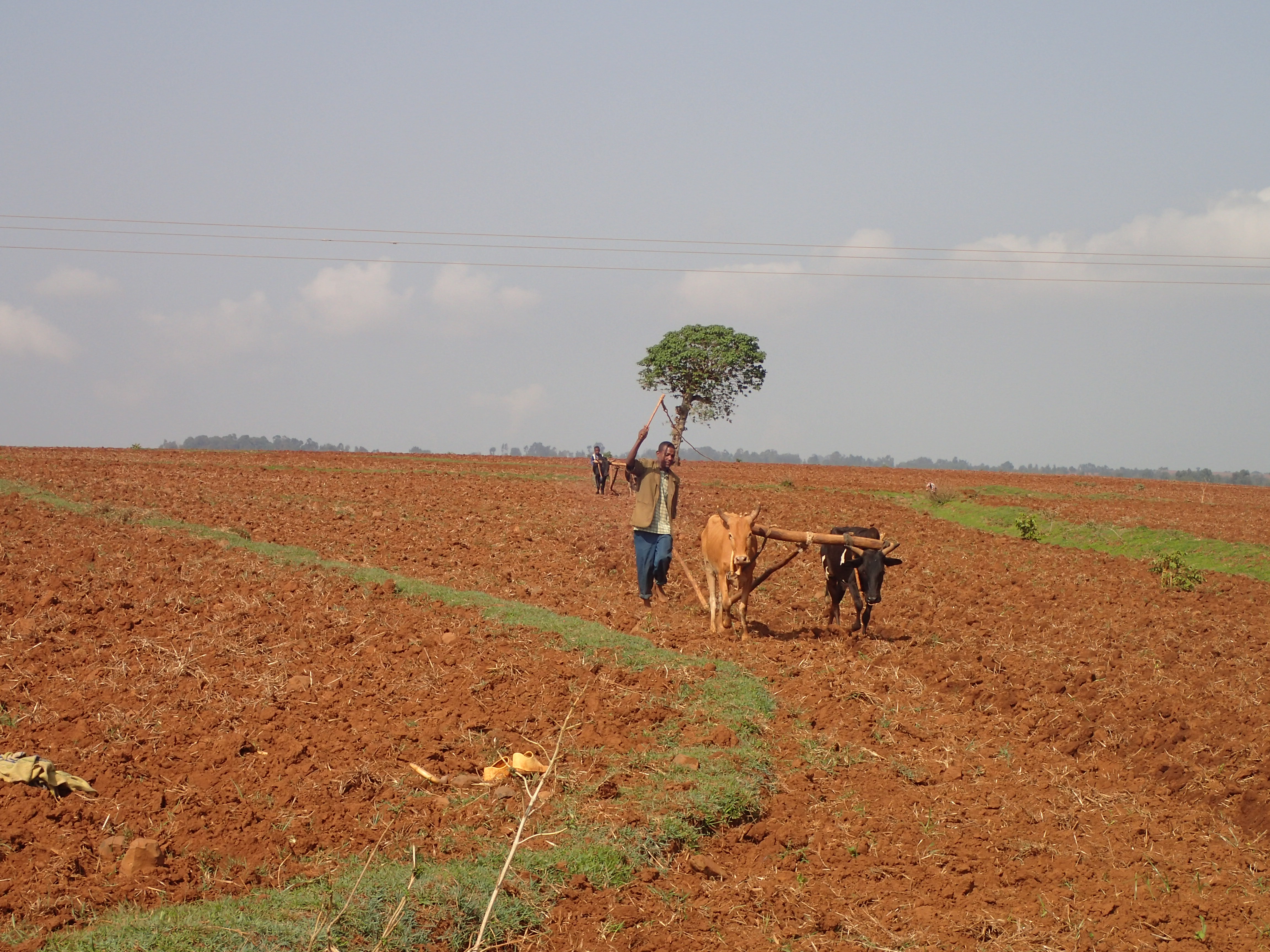
Kenya
TMG Research operates in western Kenya, in the counties of Bungoma, Kakamega and Siaya. Together with local partners, we support GIZ to implement the Soil Protection and Rehabilitation for Food Security project.
Read more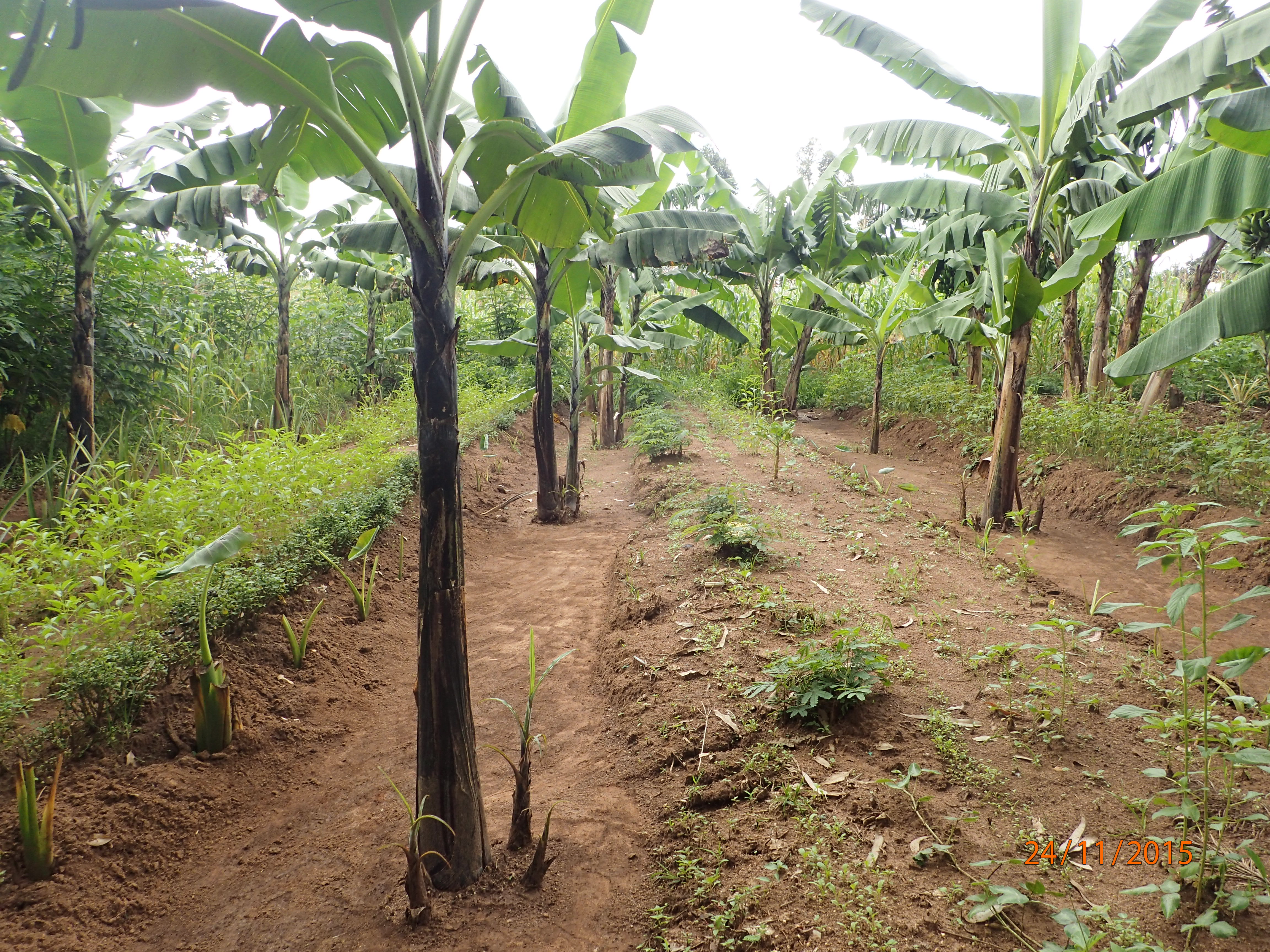
Ethiopia
TMG Research has supported the Integrated Soil Fertility Management (ISFM) project of GIZ in East Gojjam in the Amhara region of Ethiopia since 2015.
Read more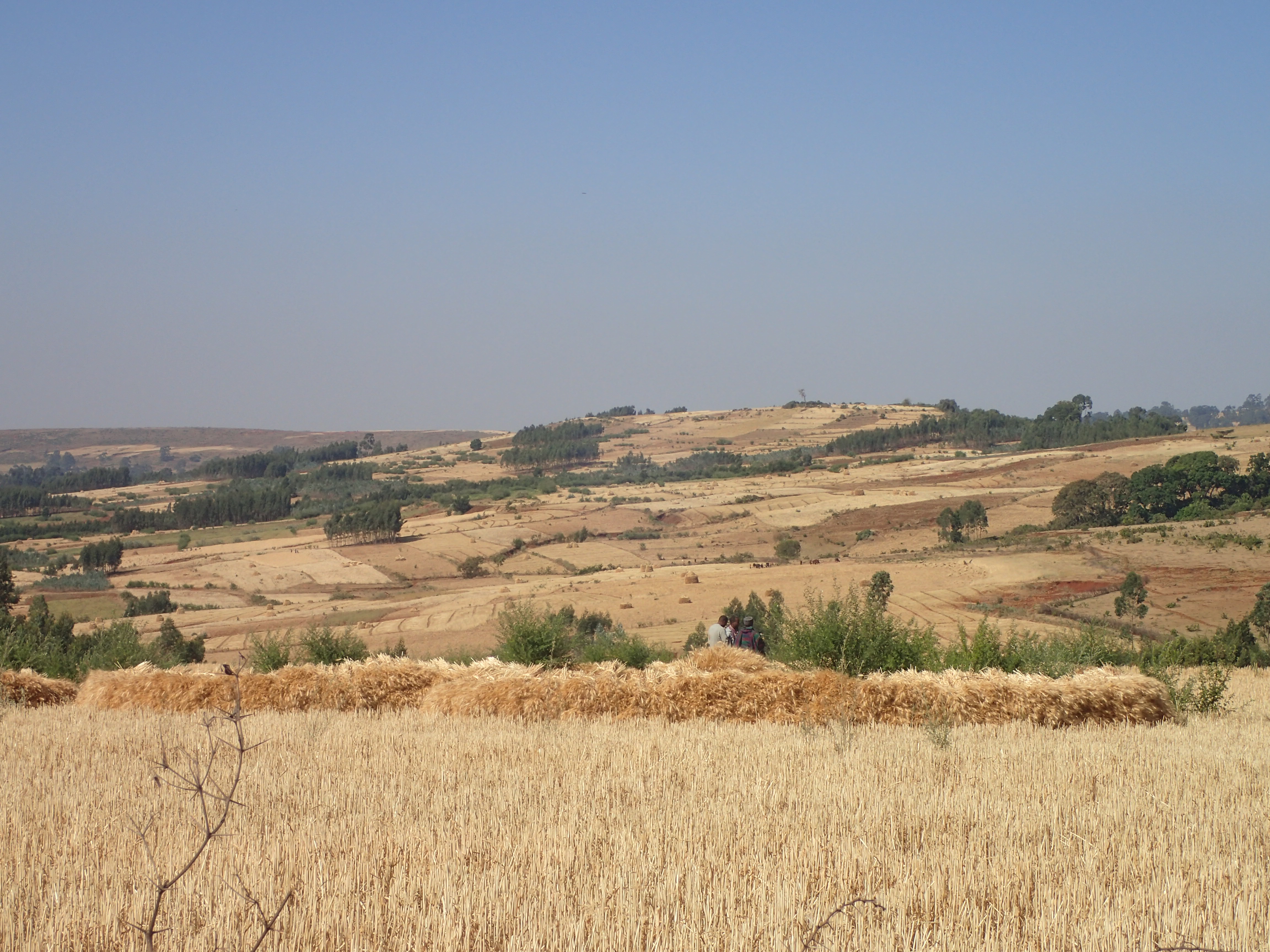
Burkina Faso
In Burkina Faso, together with our partner GRAF, we focused on insecure land tenure as a major obstacle to sustainable land management (SLM).
Read more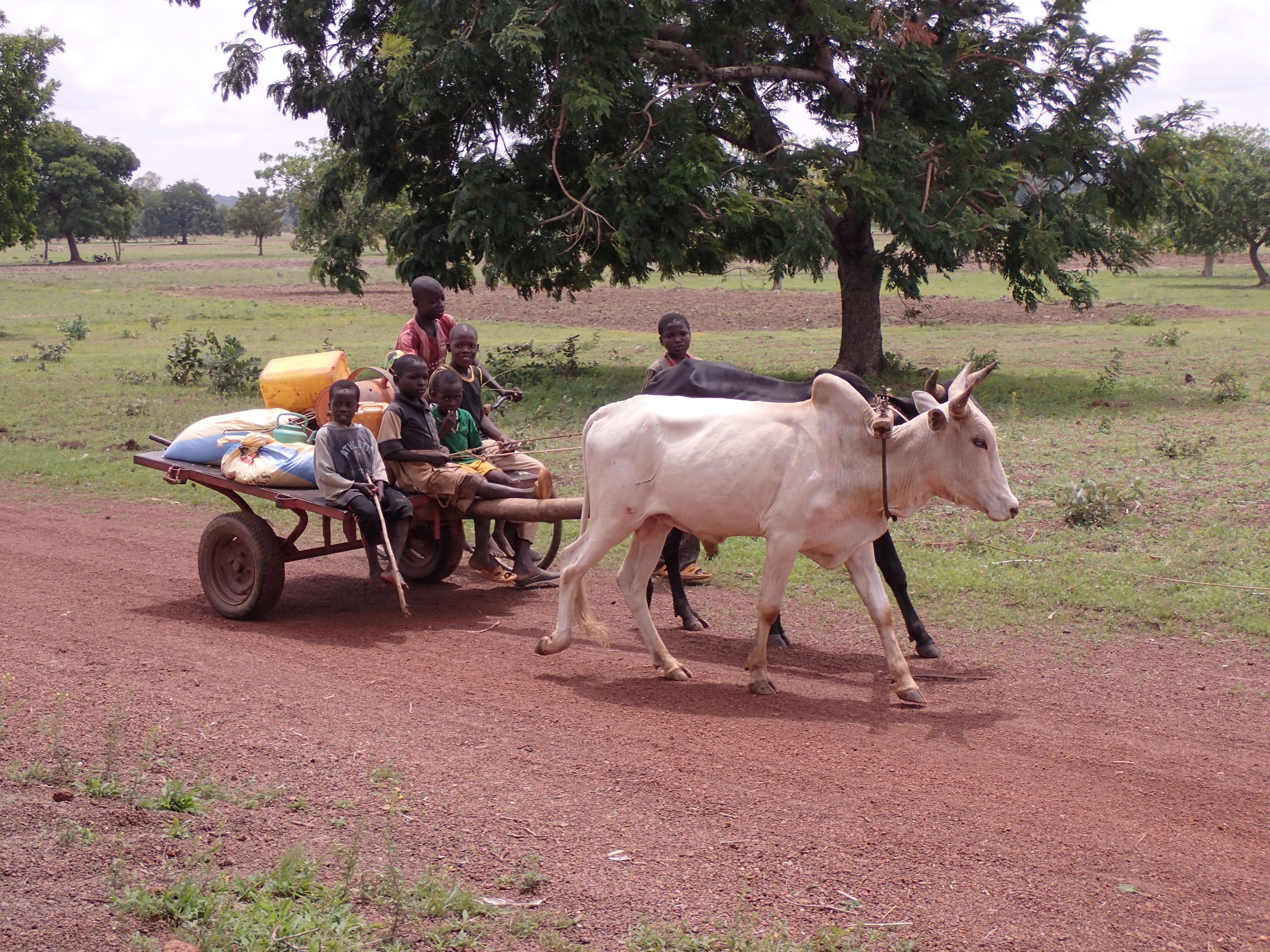
Benin
TMG Research has worked closely with the GIZ programme Protection et Réhabilitation des sols pour améliorer la sécurité alimentaire (ProSOL) in Benin since 2015.
Read more
Information sharing and resource exchange networks for improved seed, Gozamen Woreda
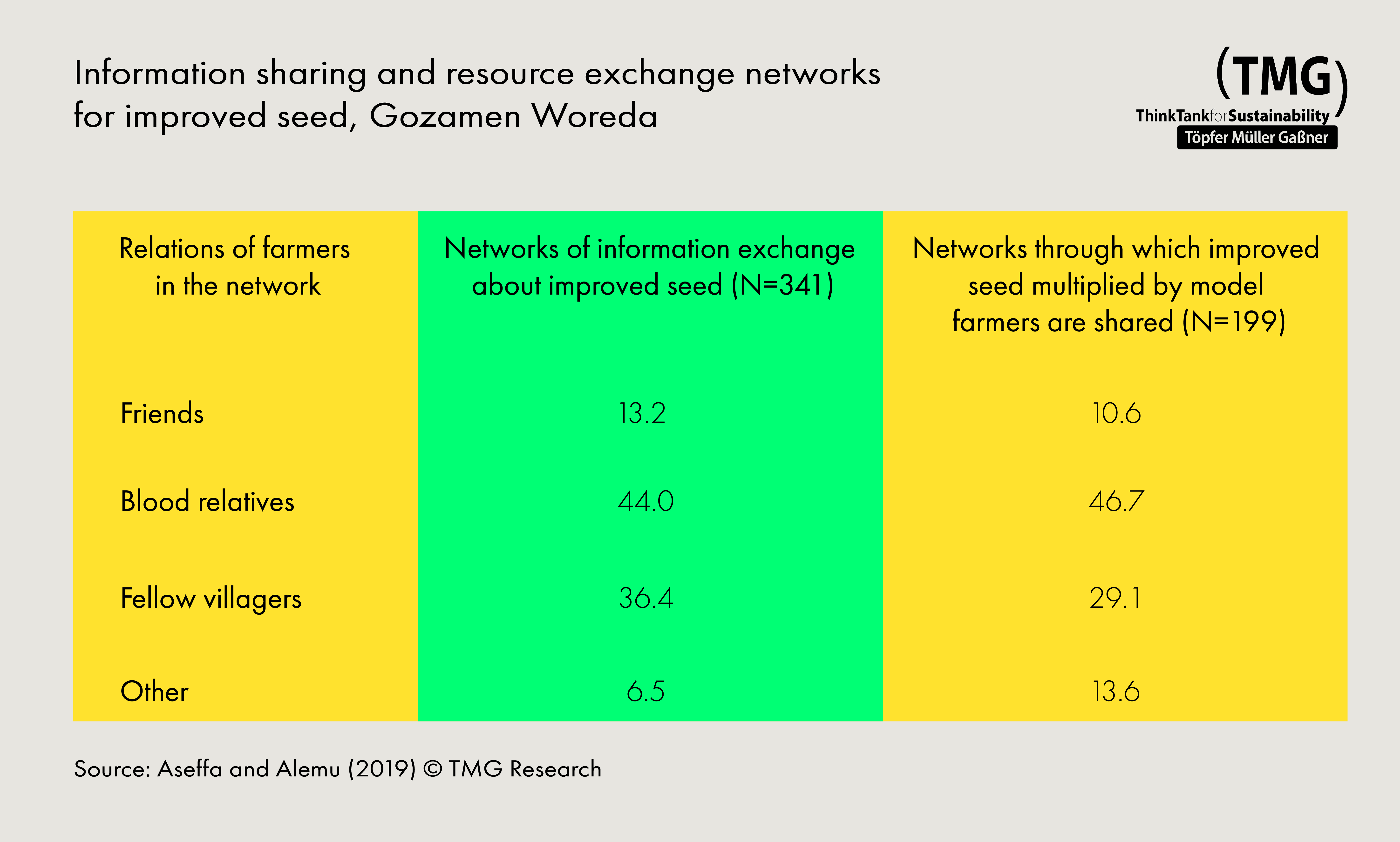
Tailoring investment in Integrated Soil Fertility Management to the needs of farmers
Locally adapted innovations to tackle soil fertility decline can emerge through interaction and communication among farmers, researchers and agricultural extension officers. In our collaborative adoption research in the highlands of the Amhara region, we supported adaptive programme management.
Read more
Catalysing technology diffusion: The Tem Sesiabun Gorado model in Benin
Entrusting communities with leadership in the sharing of knowledge and practices for sustainable land management (SLM) can catalyze the diffusion of SLM technologies. In northern Benin, TMG has taken a first step towards improving existing farmer-to-farmer extension strategies.
Read more
Reach of farmer-learners through the TSG technology
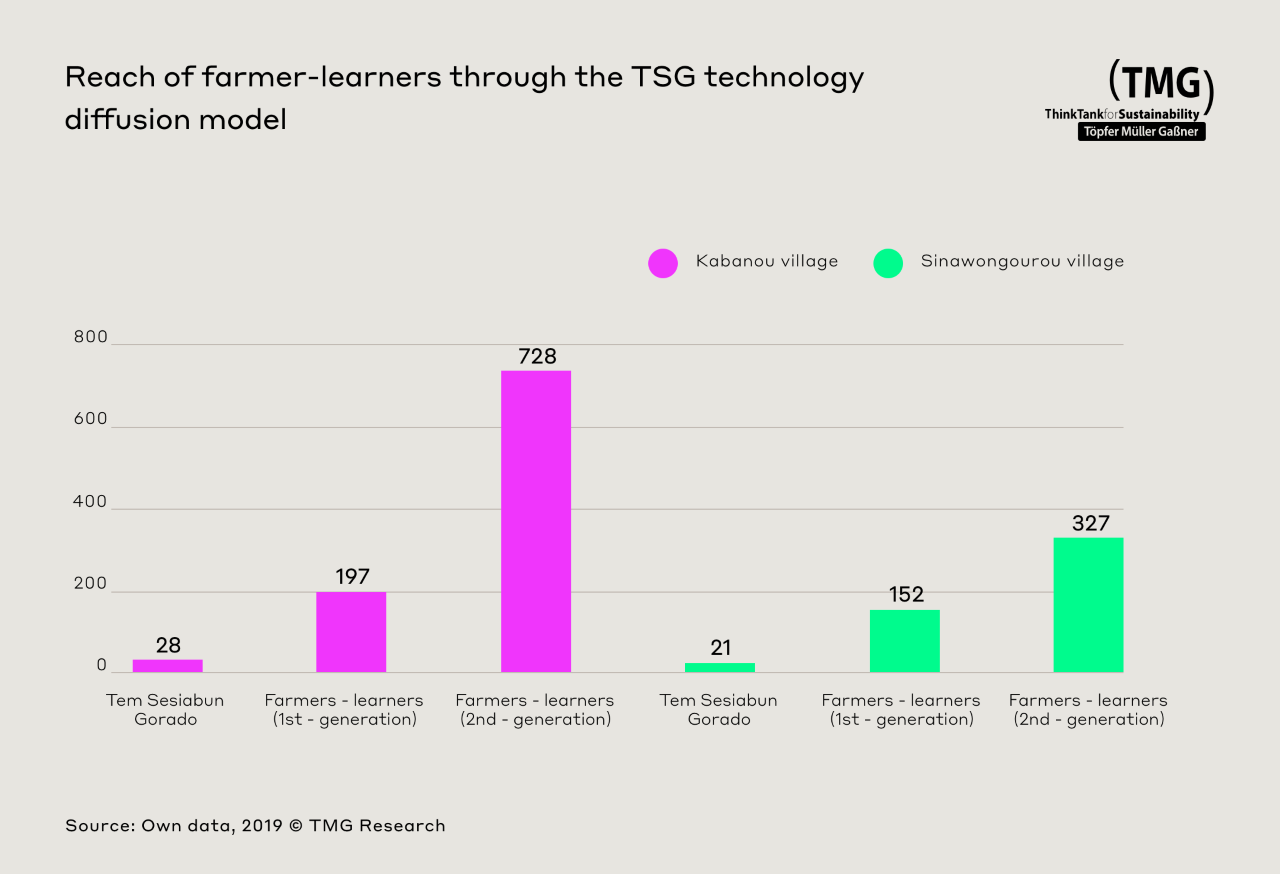
Our Partners: Shibuye Community Health Workers
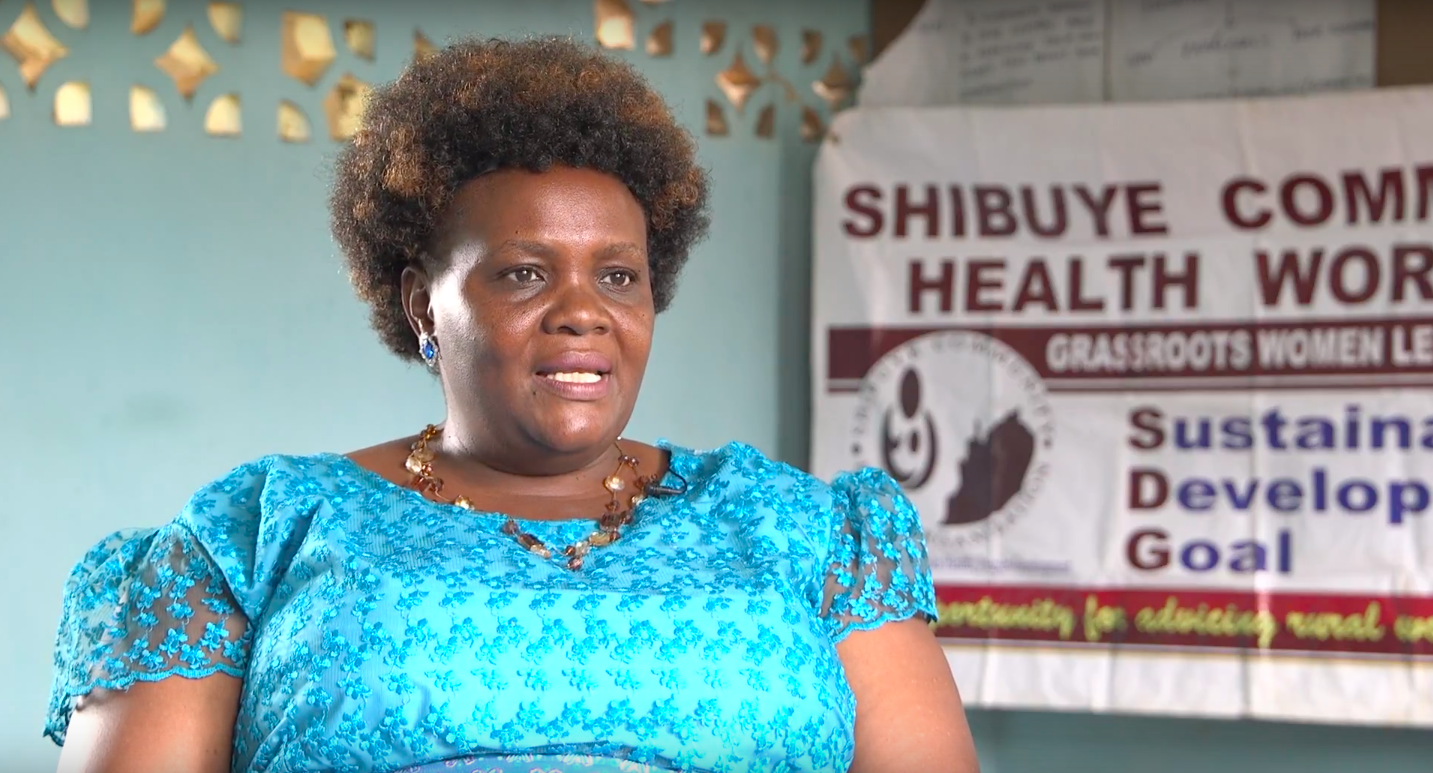
Forced rotation of women’s fields
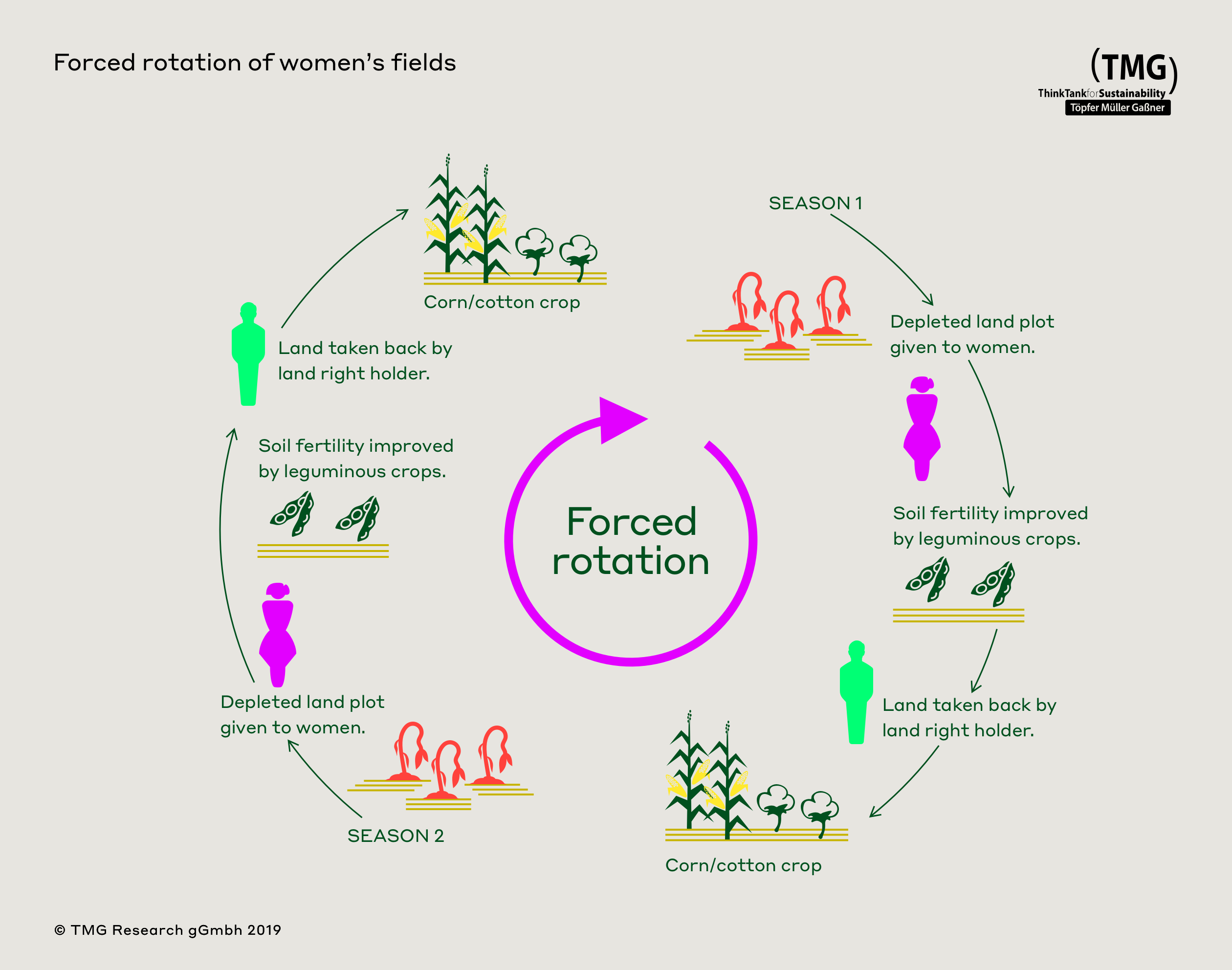
Can voluntary land consolidation transform Ethiopian agriculture?
In Ethiopia, about 60 per cent of farming households operate less than one hectare of land each. Many of those farms are split and dispersed in the landscape, known as land fragmentation. Fragmentation affects farmers’ ability to sustainably and effectively manage their land. TMG Research has explored the potential of voluntary land consolidation.
Read more
Circumstances and incentives for consolidation
Circumstances and incentives for farmers to take part in land consolidation
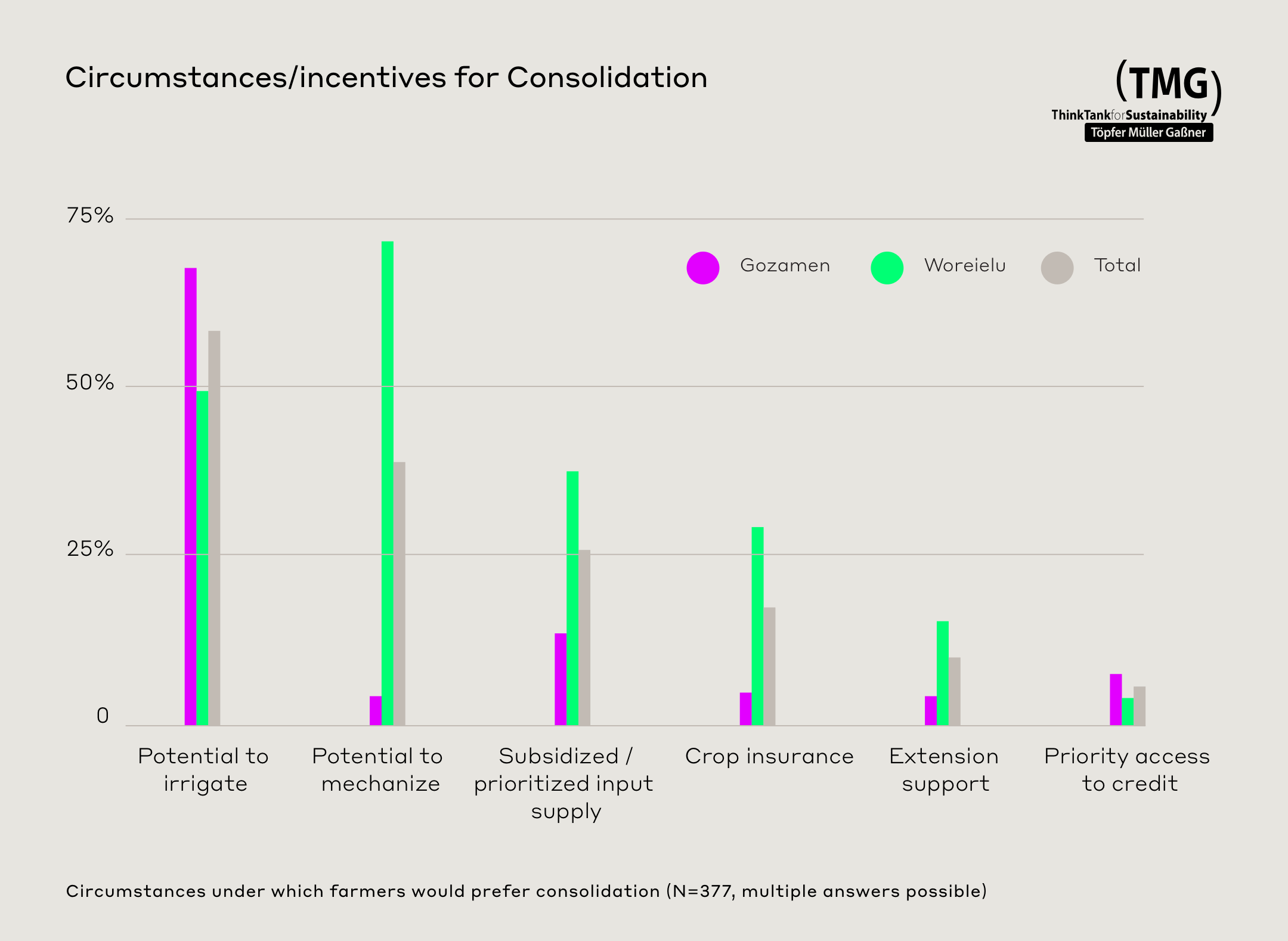
Parcels and distance from plots in Addisnagulit Kebele
Number of parcels and distance from homestead of selected smallholders in Addisnagulit Kebele.
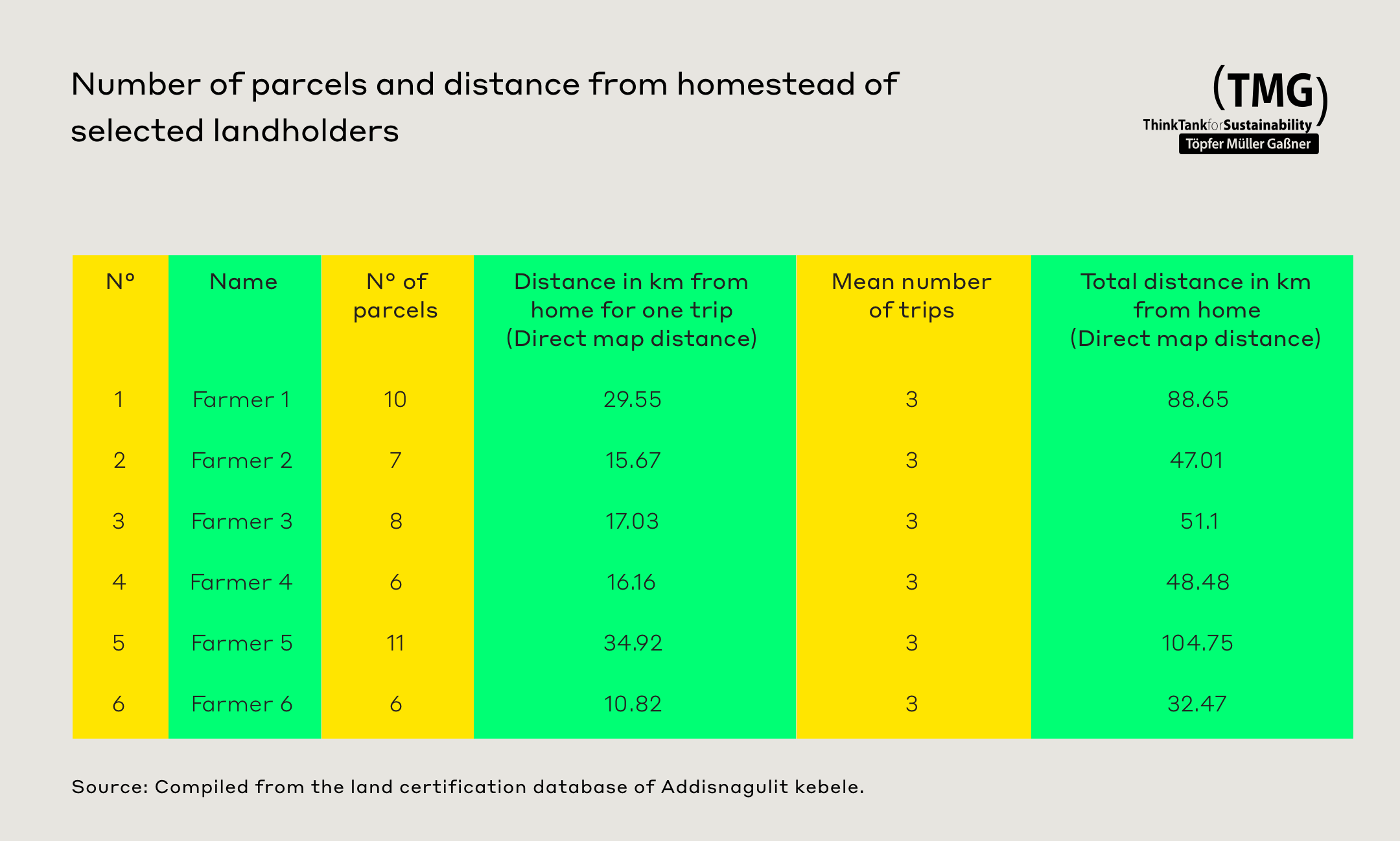
Secured access to land: the lynchpin for sustainable land management and livelihoods
In sub-Saharan Africa and India many programmes for sustainable land management (SLM) are implemented in contexts where most land is governed under customary law. Many farmers, especially women, have insecure access to land and little incentive to invest in soil protection in the long run.
Read more
Comment mettre la gestion durable des terres au service des exploitantes agricoles
Recommandations à l’intention des décideurs politiques et des concepteurs de programmes, basées sur des données probantes issues d’études de cas au Bénin et au Burkina Faso.
Working Paper 2019Reaching farmers beyond project beneficiaries. The Tem Sesiabun Gorado model for improving farmer-to-farmer extension approaches
The Tem Sesiabun Gorado (TSG) model is a farmer-to-farmer technology diffusion model. It seeks to address common shortcomings of conventional farmer-to-farmer extension approaches, in particular with respect to accountability mechanisms and sustaining the motivation of farmer trainers.
Working Paper 2019Making sustainable land management work for women smallholders
Recommendations for policy makers, and programme implementers, based on evidence from case studies in Benin and Burkina Faso.
Working Paper 2019Opportunities for Voluntary Land Consolidation in Ethiopia: Farmers’ Perspectives
Exploring voluntary land consolidation as an instrument to tackle one important SLM adoption challenge – land fragmentation: insights and recommendations on a way forward from TMG’s work in Ethiopia.
Working Paper 2019Securing land access for women. An innovative process based on social legitimacy
The purpose of this guide is to provide target actors with a tool for the conduct of an alternative process for securing access to land for women.
Technical Guide 2020A facilitator’s guide. Community-led Land Lease Guidelines
This Facilitator’s Guide is intended for practitioners involved in supporting smallholder farming communities in the development of tools to enhance access to land through leasing. It is based on experience gained in piloting community-led land lease guidelines in Kakamega County in Kenya but can be adapted to other contexts.
Technical Guide 2019Vincent Okoth, Deputy Director of Agriculture, Siaya County
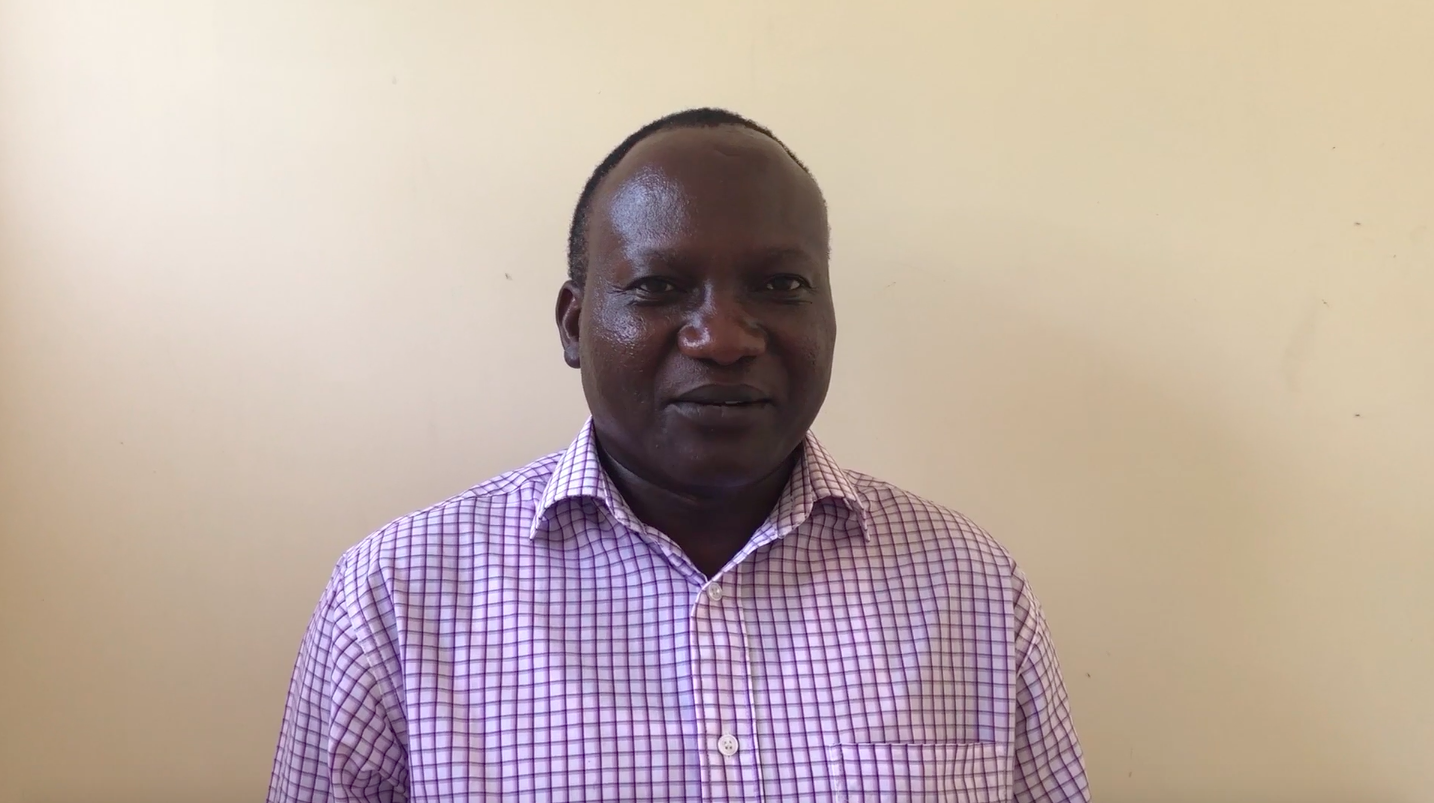
Process of securing land access for women in Tiarako, Burkina Faso
Process of securing land access for women in Tiarako, Burkina Faso

Tem Sesiabun Gorado Technology Diffusion Model
Tem Sesiabun Gorado Technology Diffusion Model
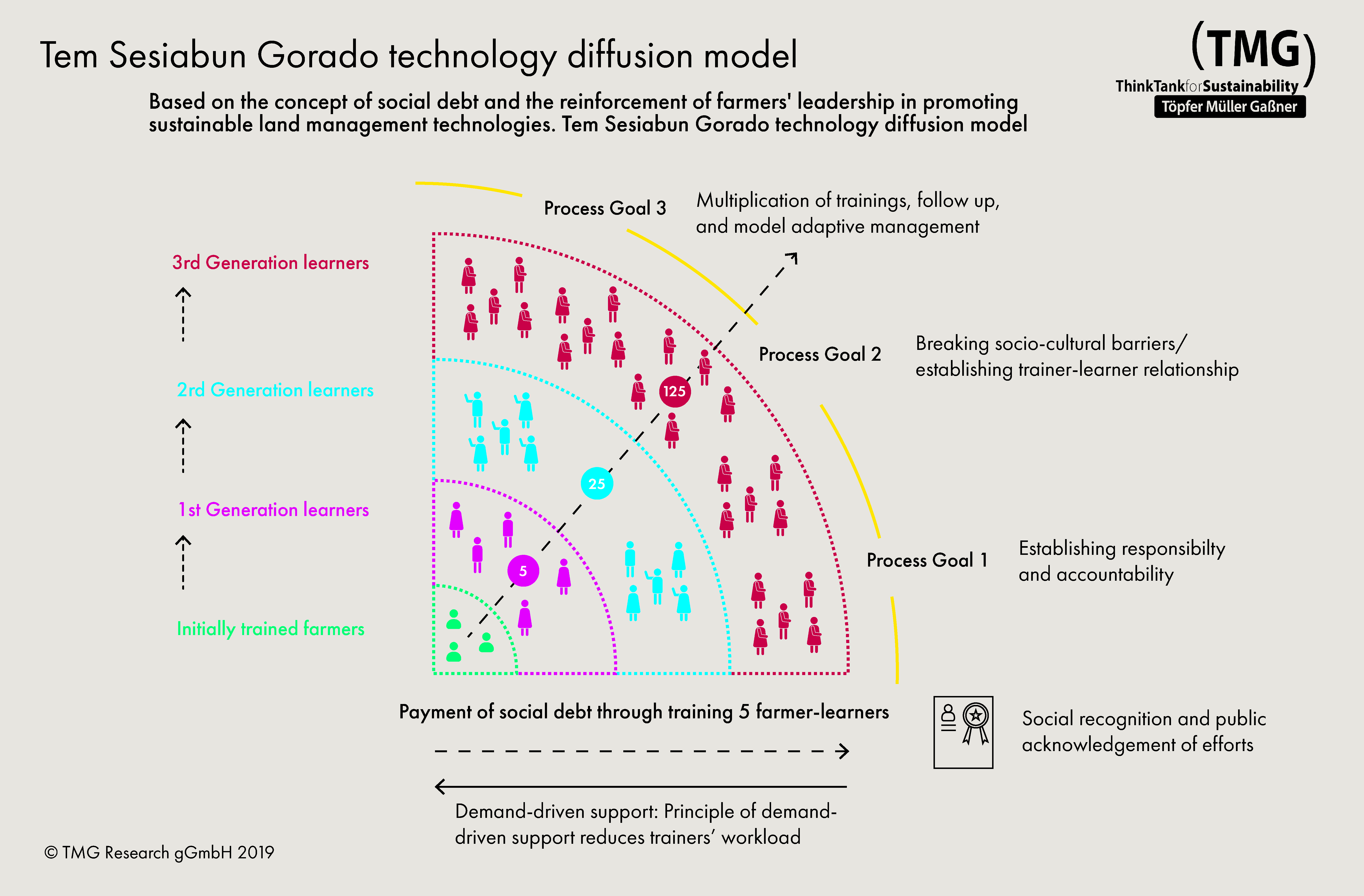
Process of developing community-led land lease guidelines (LLG)
Process of developing community-led land lease guidelines (LLG)

Challenges for agricultural extension
Challenges for agricultural extension
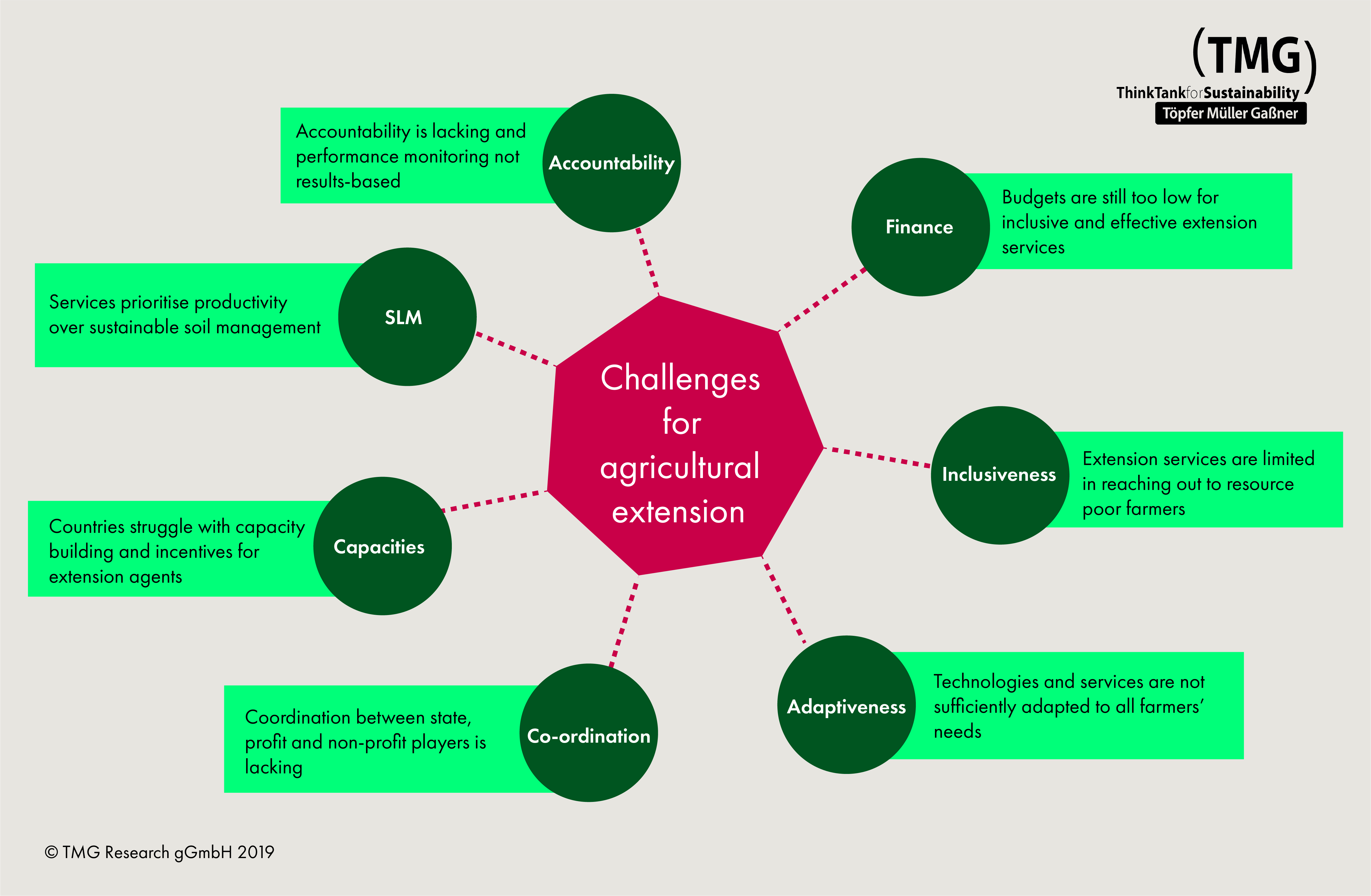
Gender distribution of the community-based agents and their farmer-learners in the village of Kabanou and Sinawongourou
Gender distribution of the community-based agents and their farmer-learners in the village of Kabanou and Sinawongourou

Developing Social Innovations through Transdisciplinary Research

Co-Implementation of social innovations

Co-Development of social innovations
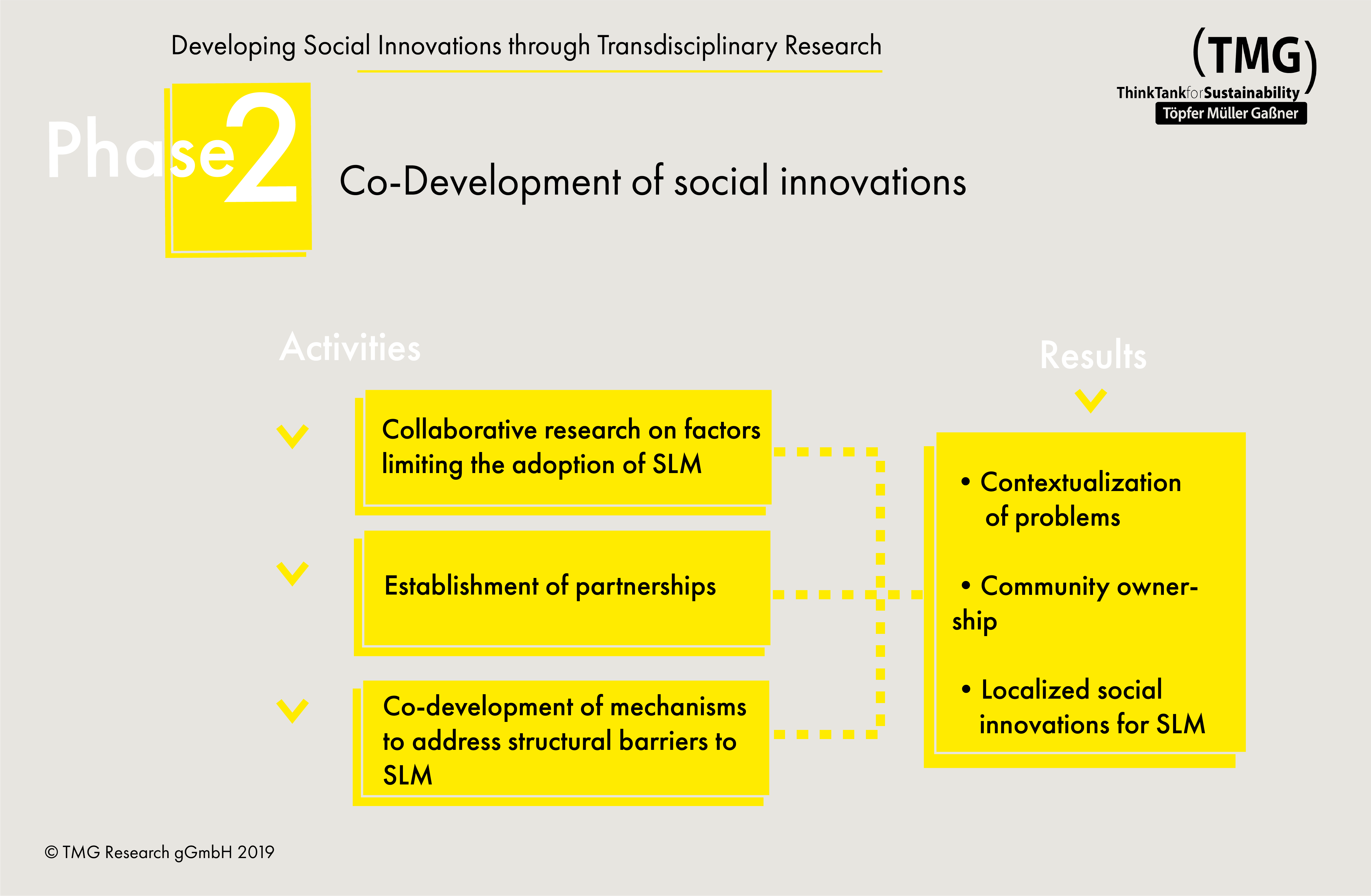
Developing shared understanding

Developing social innovations through transdisciplinary research
Despite decades of experience and investments, sustainable land management (SLM) still faces challenges to achieve long-term practice of SLM among smallholder farmers: when programmes end support, farmers often also stop applying the technologies.
Read more
How management of the commons affects sustainable land management
The livelihoods of people across the district of Mandla in the state of Madhya Pradesh depends on rice cultivation like in most of India. The System of Rice Intensification (SRI) was introduced 20 years ago to boost yields by optimal use of inputs, water, and land. Irrigation is crucial for the success of SRI, but only one in five farmers in Mandla has access to irrigation.
Read more
Social Innovations

Sustainable land management is more than technology. It needs social innovations
We need healthy soils to produce food, store carbon for climate change mitigation, and provide clean drinking water. Fortunately, there is no shortage of technologies to protect and restore soils. But farmers still struggle to protect their soil.
Read moreDavid Lutta, Ward Administrator, Isukha West Ward, Kakamega County
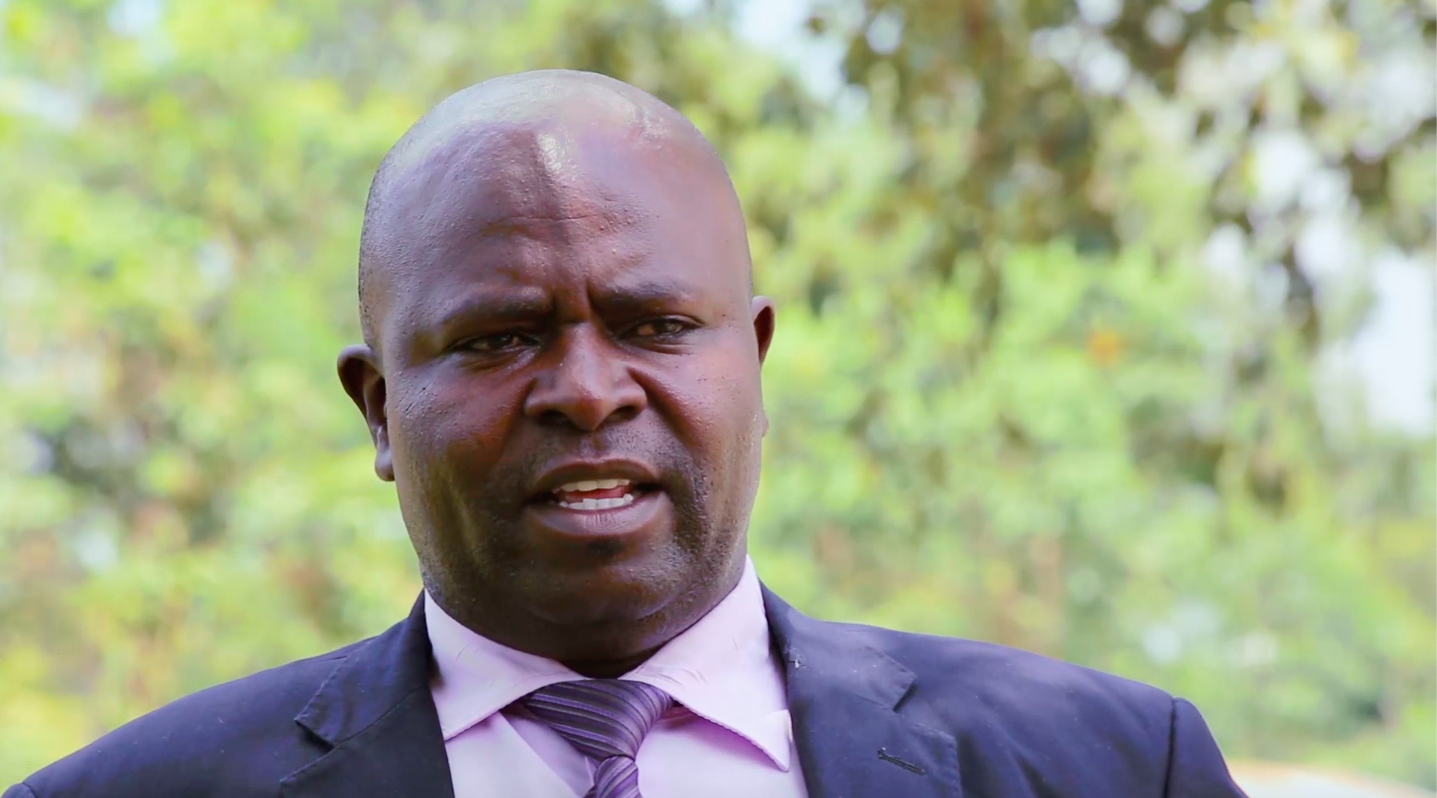
Doreen Magotsi, Community Visitor, Shibuye Community Health Workers
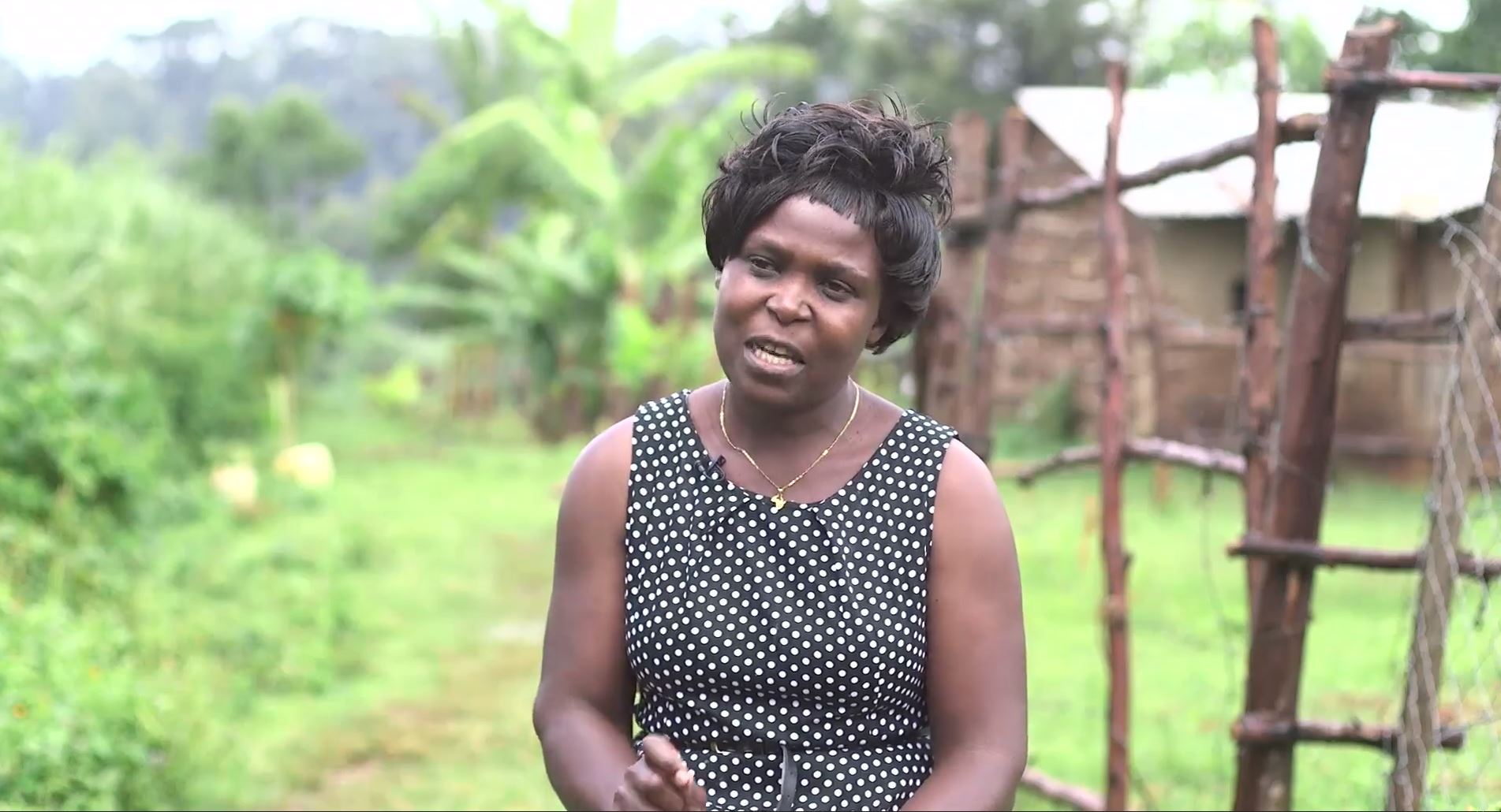
Violet Shivutse, Director of Shibuye Community Health Workers

H.E. Wycliffe Oparanya, Governor, Kakamega County
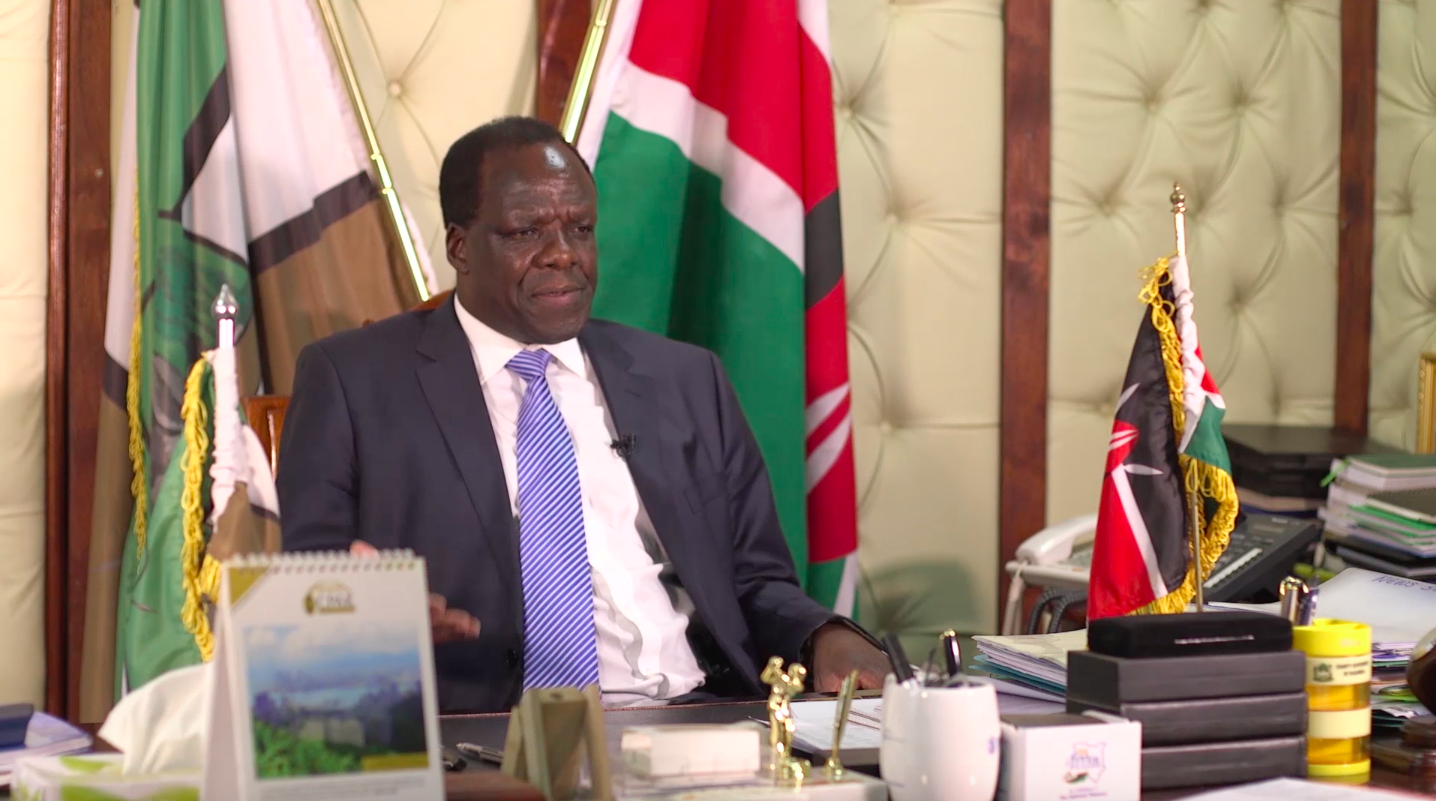
Governor’s Day with Farmers
Many smallholder farmers in Kenya feel their interests are under-represented in agricultural policy-making processes. The existing farmers’ associations lack effective mechanisms for engaging with policy makers. What is needed is an innovative platform to formalise effective cooperation, like a Governor’s Day with Farmers!
Read more
Community-led lease guidelines secure access to land in Kakamega County, Kenya
Leasing farming land is a common practice in rural Kenya. But existing legal provisions for leasing land are unclear and the official process costly. Community-led land lease guidelines are accessible to resource-poor smallholders.
Read more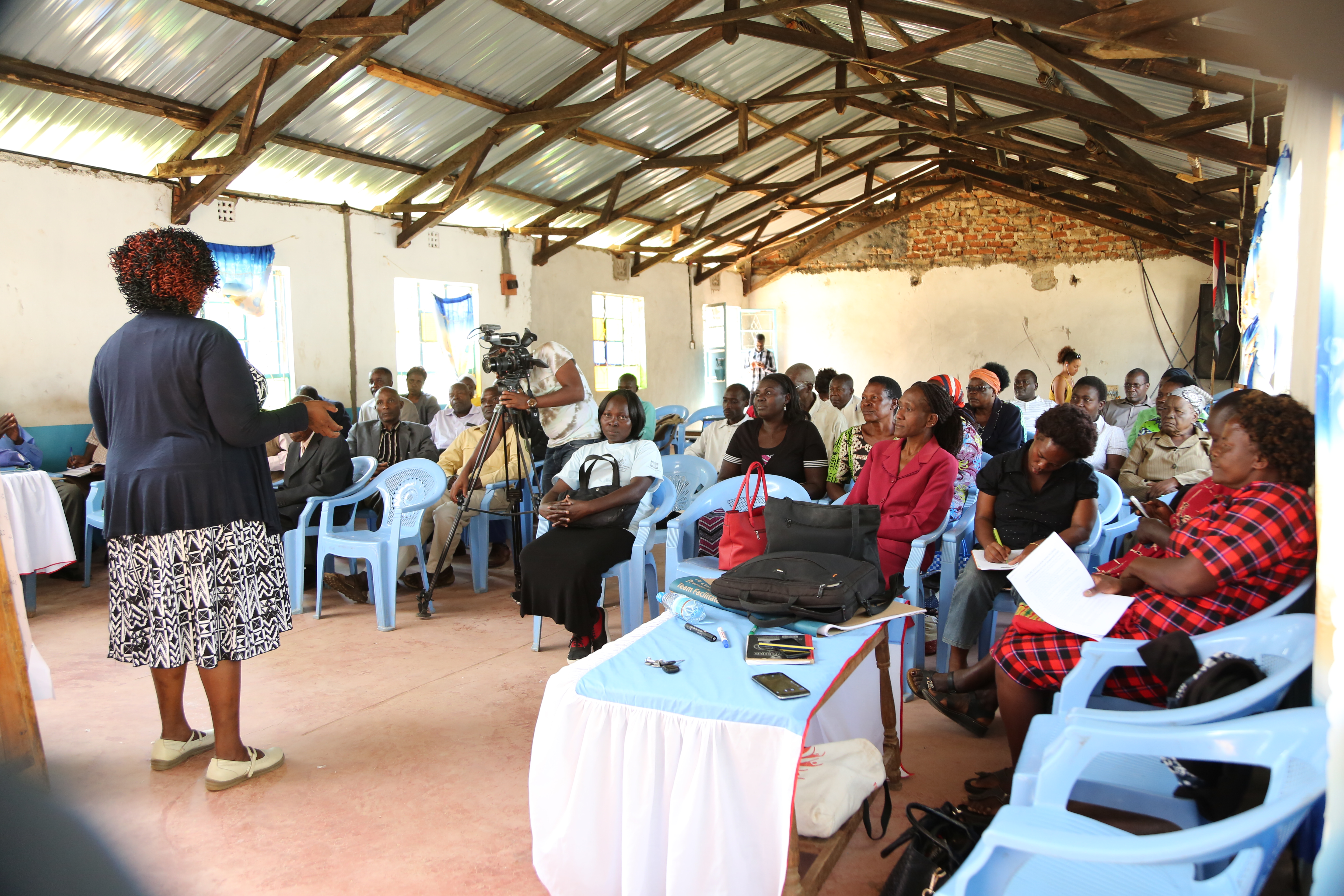
Burkina Faso map
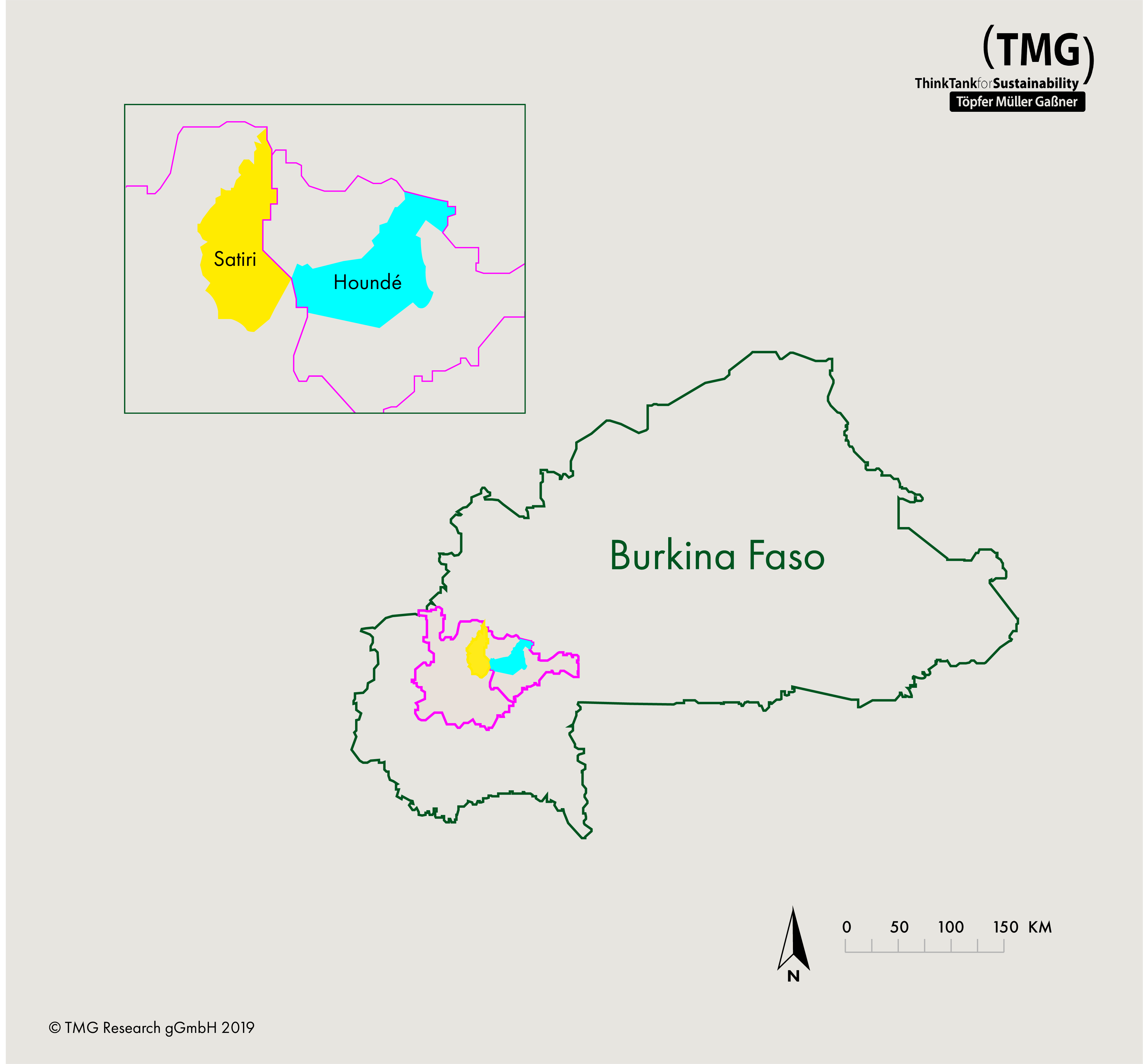
Ethiopia map

India map

Kenya map
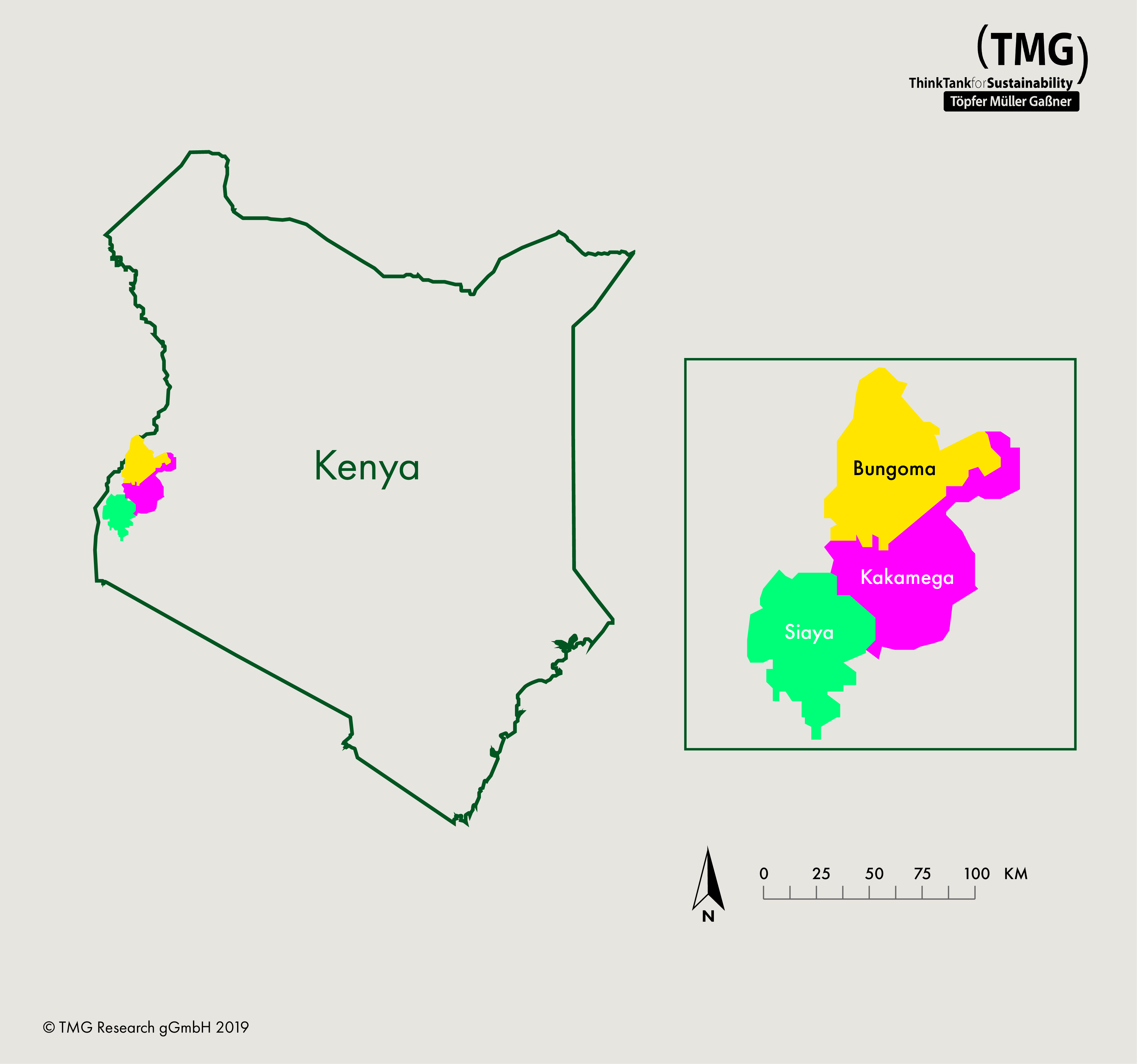
Benin Map
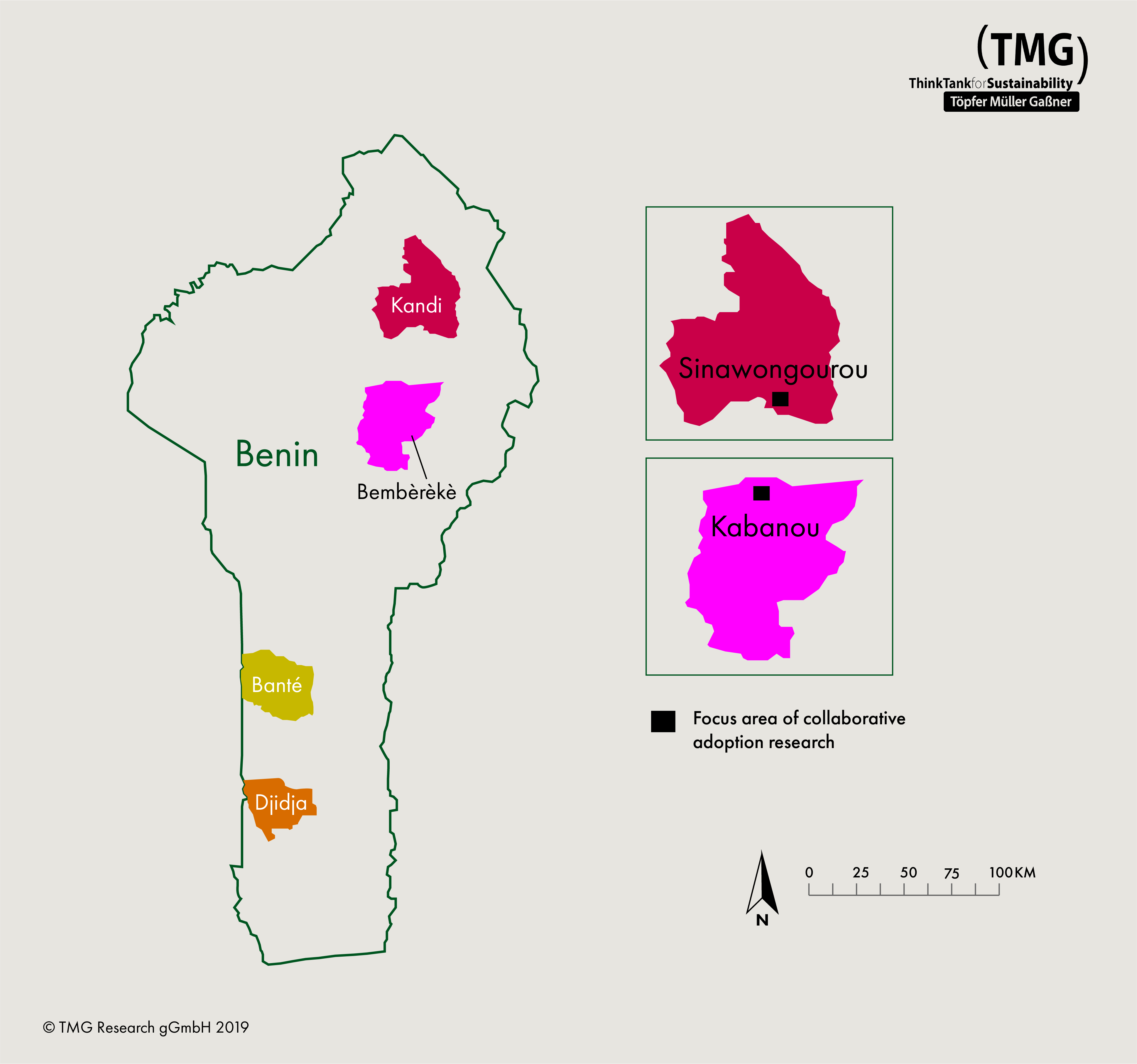
A peer review process for improving public extension services provision
TMG Research and institutional stakeholders of the agricultural sector in western Kenya adopted a peer review process as a platform where stakeholders critically examined options for providing effective agricultural extension services. The peer review addressed targeting the poor and promoting sustainable land management.
Read more
Making agricultural extension services work for smallholder farmers
These sentiments by a farmer in western Kenya are common amongst farmers, many of whom are referred to as smallholder farmers because they farm on land that is less than two and a half times the size of a football pitch.
Read more
Cultivating Equality – Success Stories from Tiarako
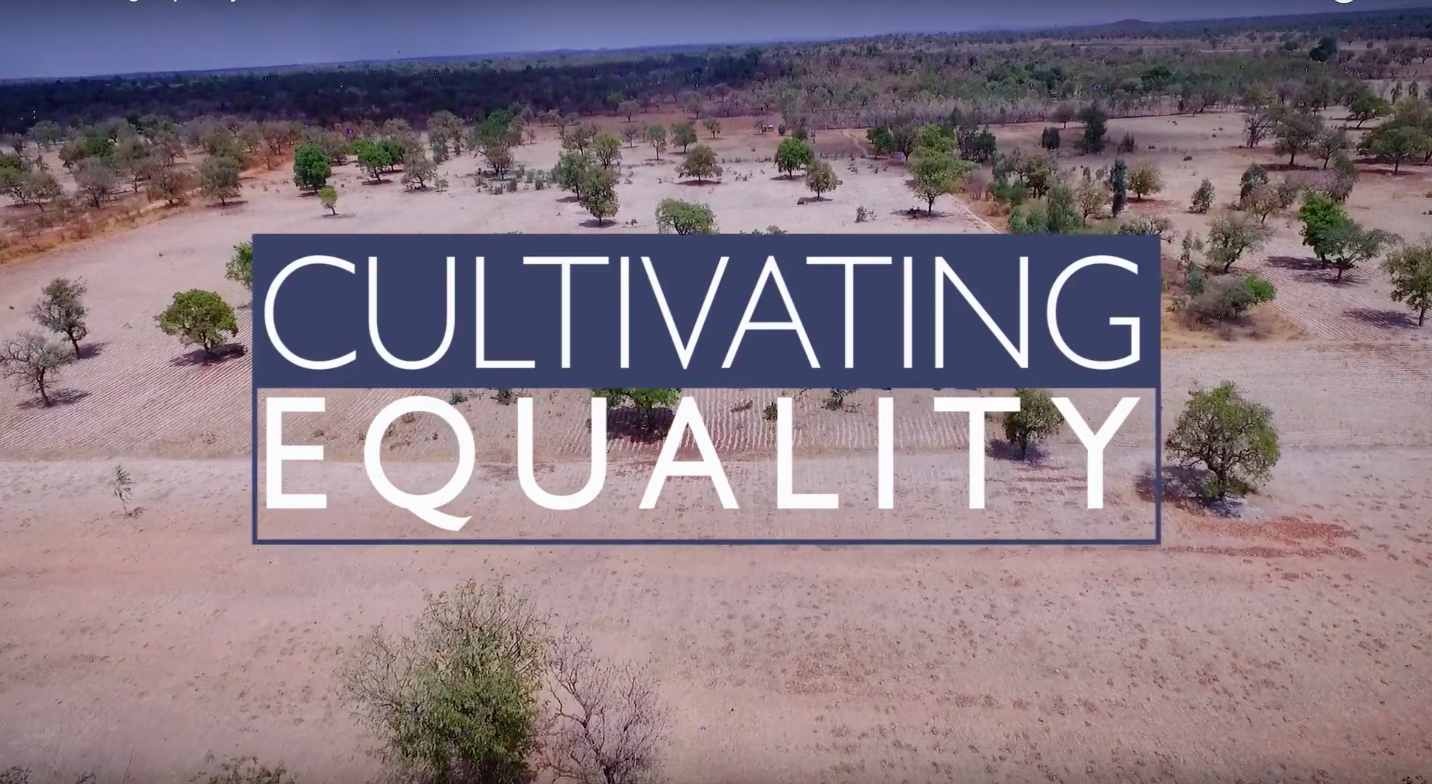
Community-led Land Lease Guidelines in Kenya
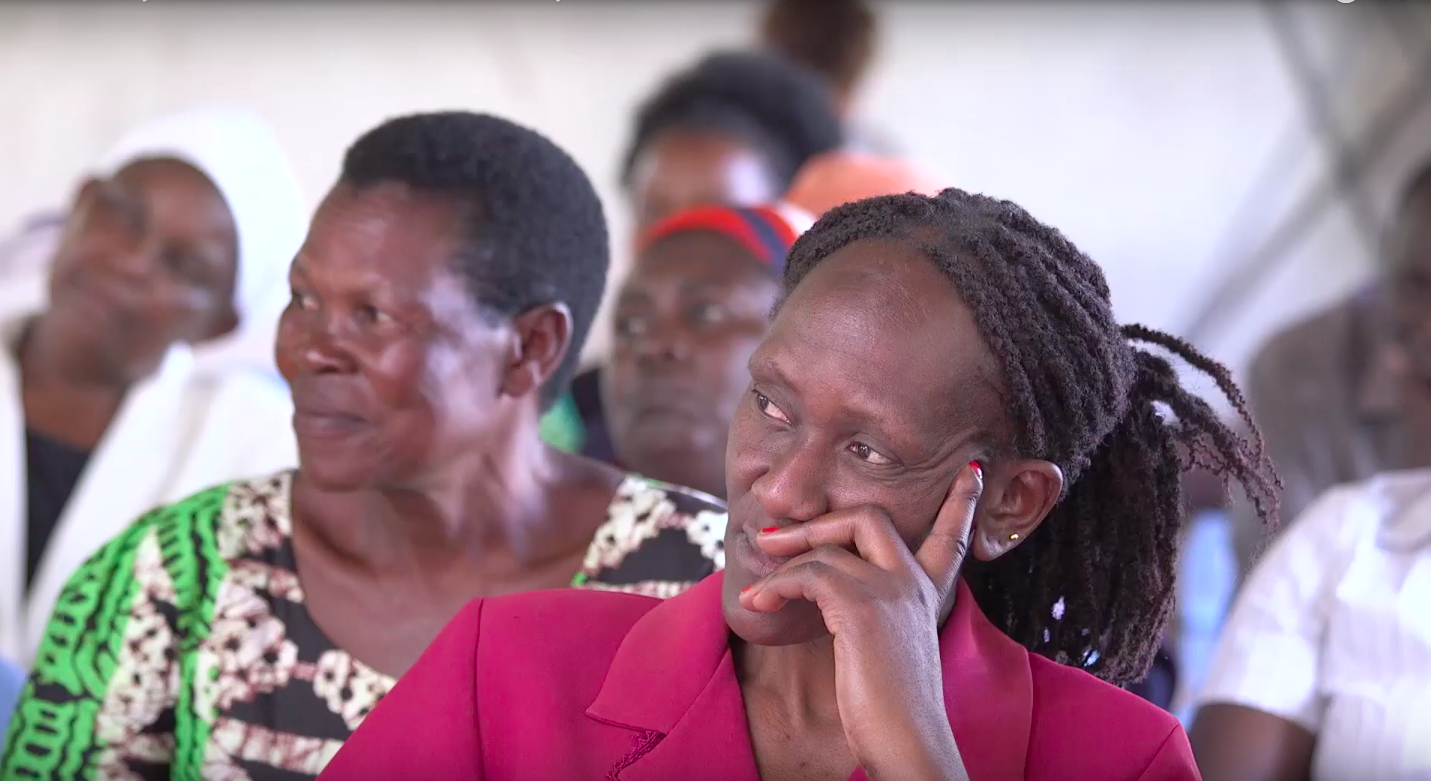
Securing Land Access for Women in Burkina Faso

Nadege talking about men’s engagement in Tiarako
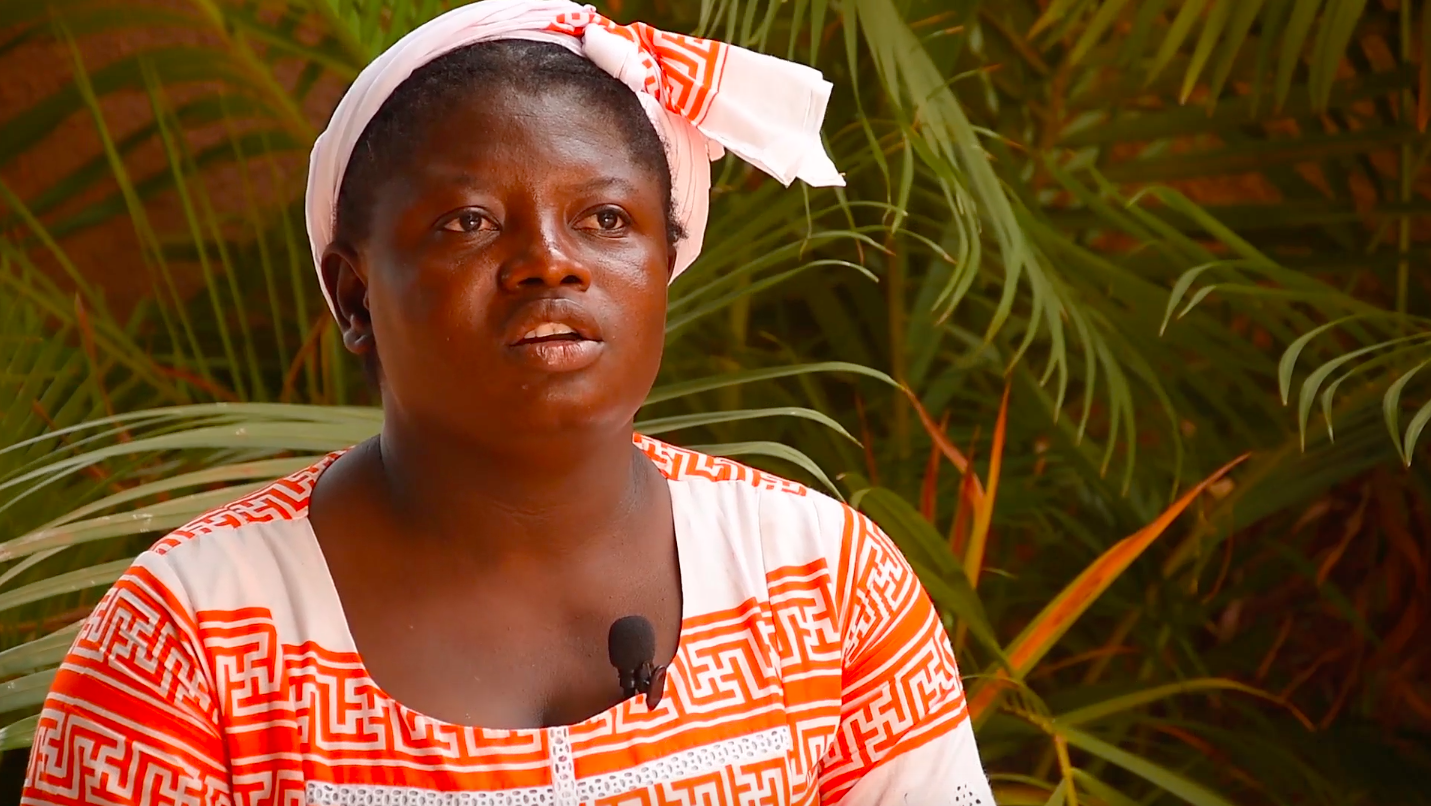
Peer-review process for reforming extension in west Kenya
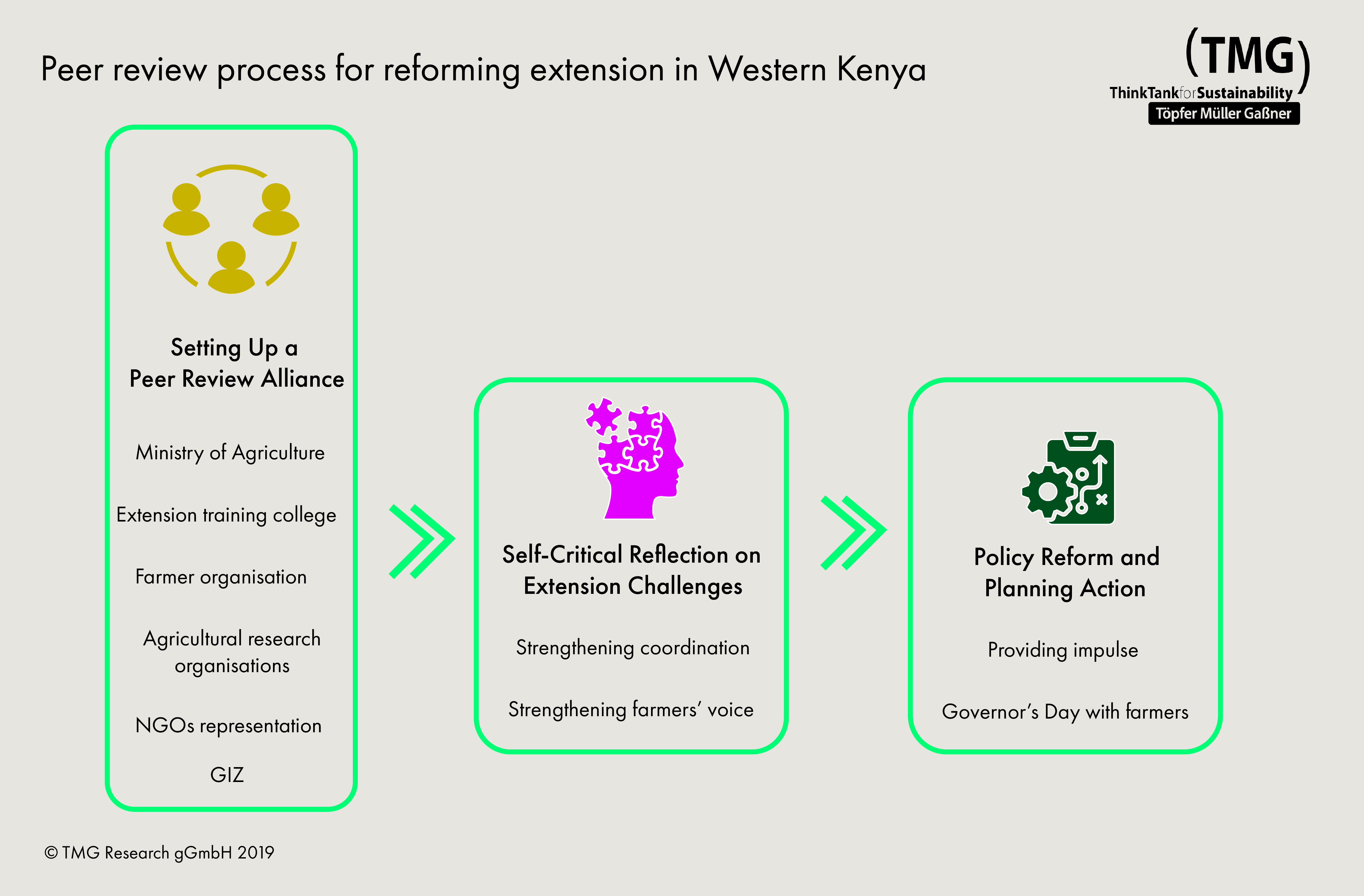
Female farmer talking about her secured field, Tiarako, Burkina Faso
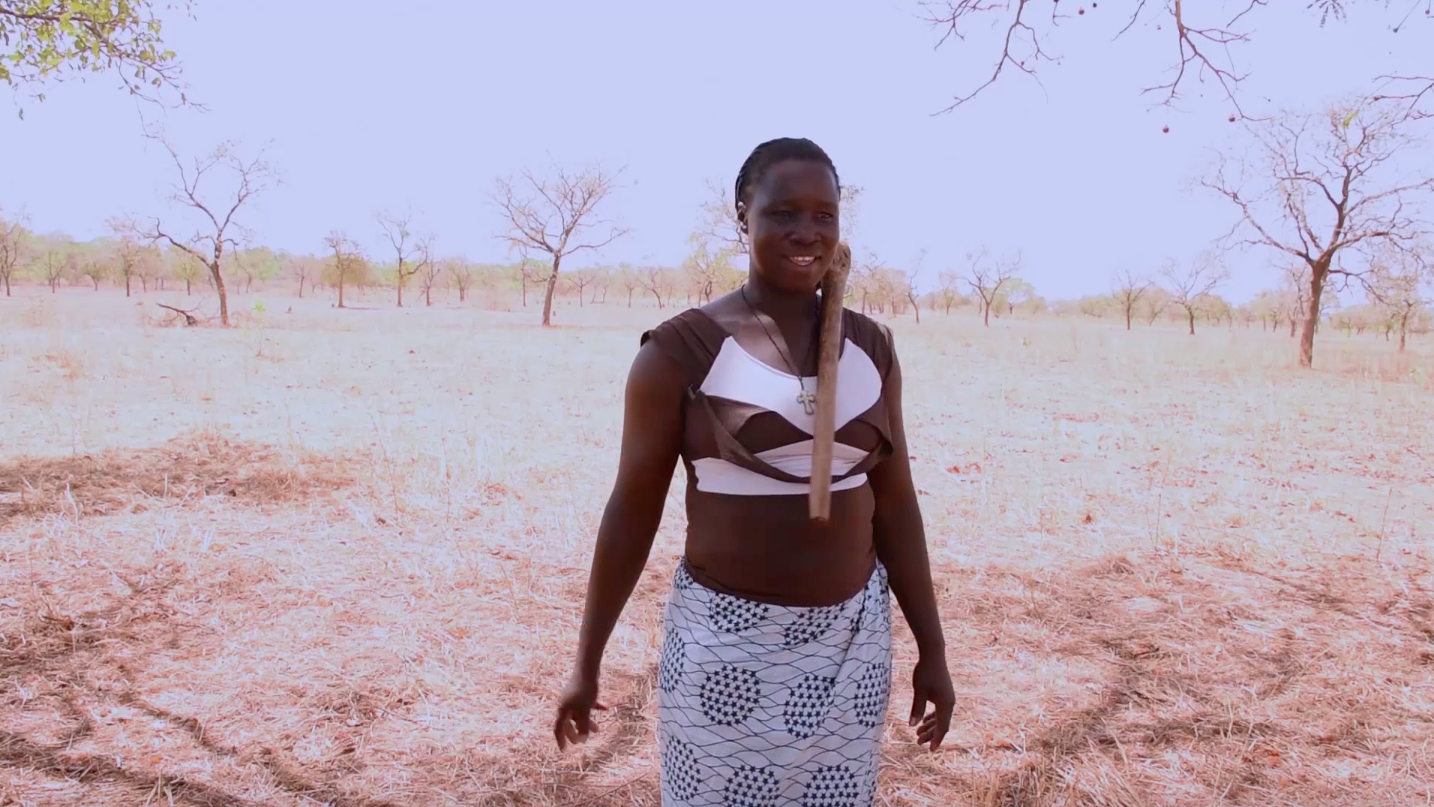
Edwige, female farmer, Tiarako, Burkina Faso

Social innovations to secure women’s land rights in Burkina Faso
Farmers running the risk of losing their land cannot invest in soil management. Women in western Burkina Faso are in this situation. Together with our partner GRAF, we have developed a social innovation to improve women’s tenure situation within the family farm.
Read more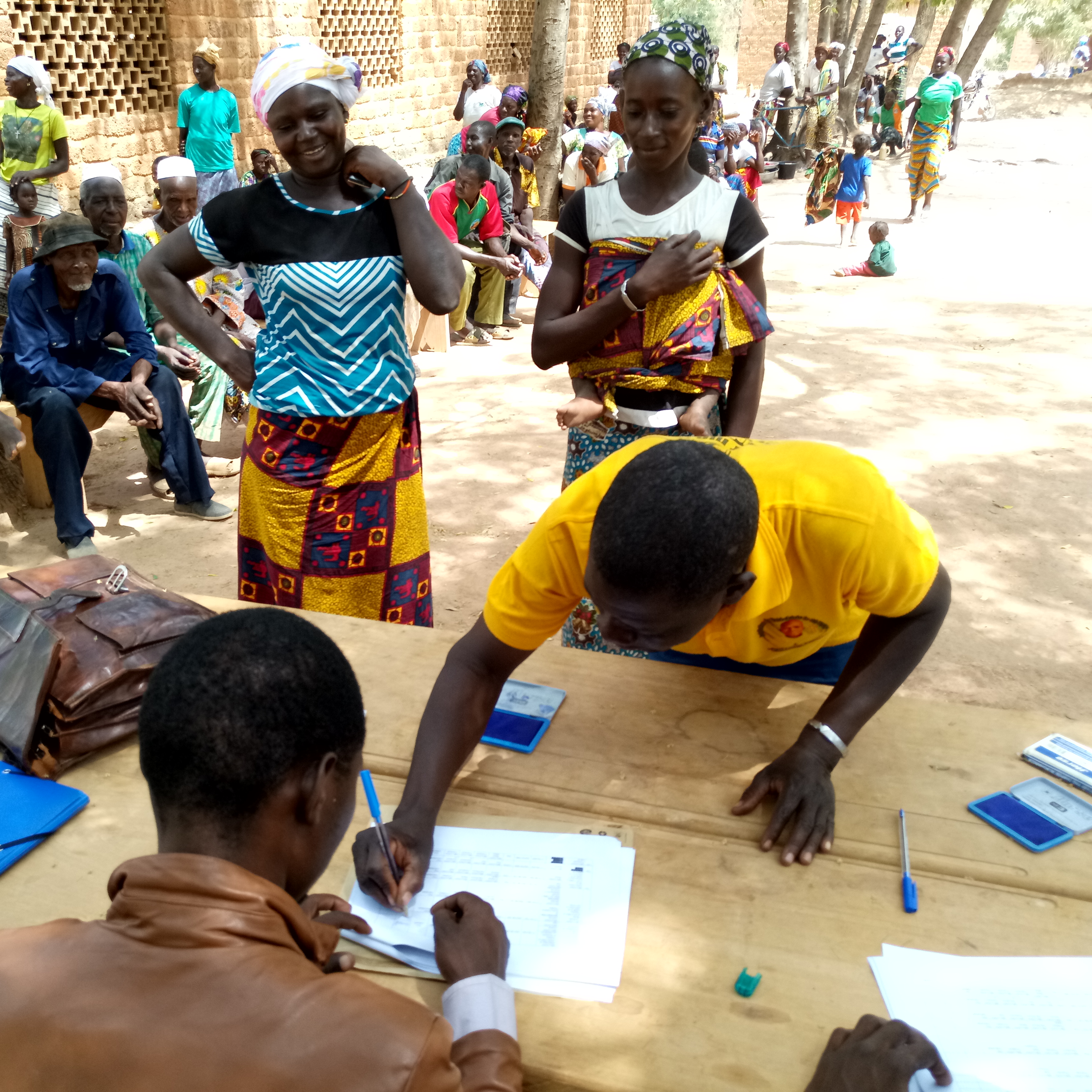
Recruitment of labour
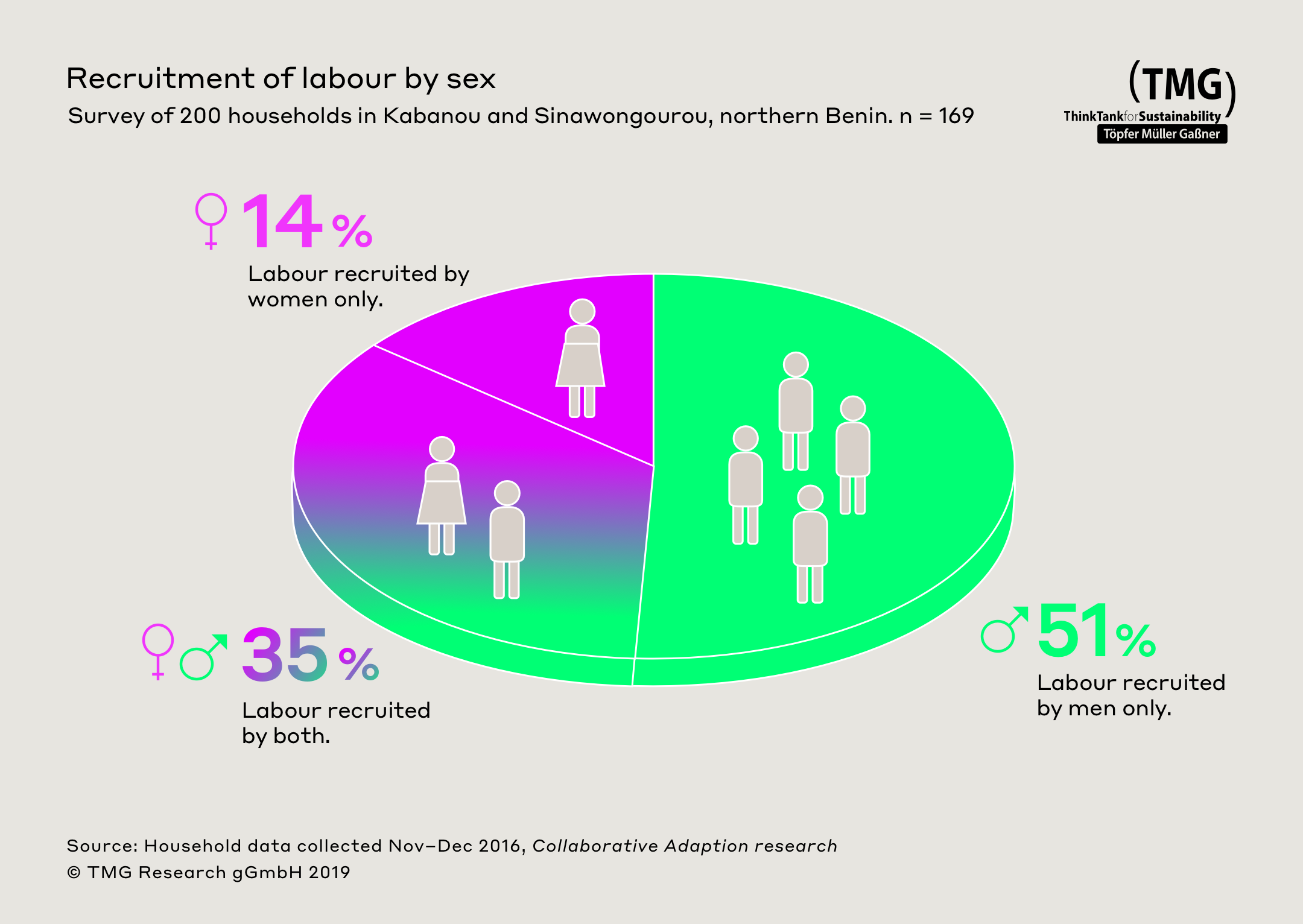
Sustainable land management through a gender lens
Technical solutions to soil degradation are plentiful. And yet, smallholder farmers struggle to preserve soil health. One important dimension we often overlook is gender.
Read more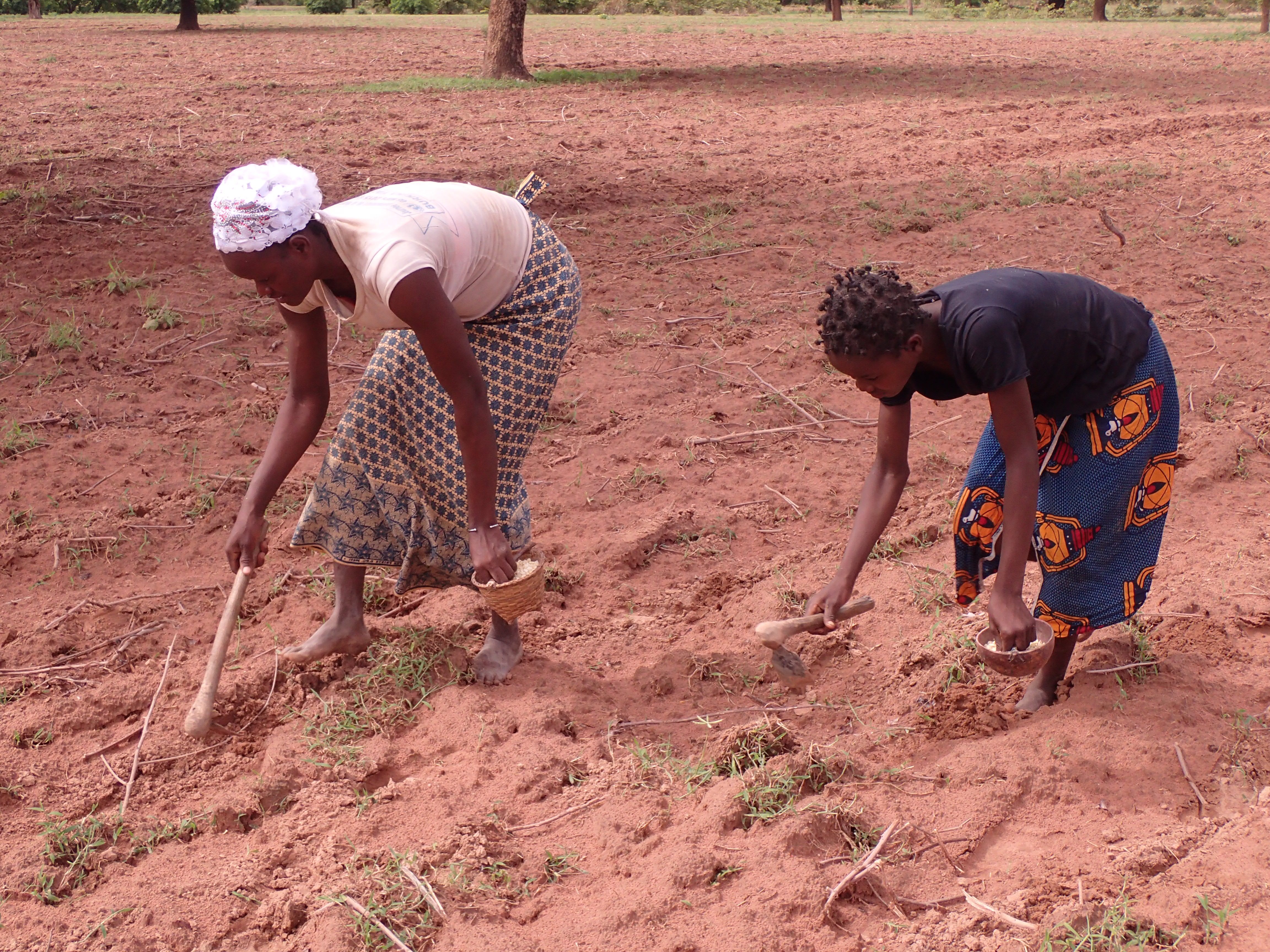
L’Accès Sécurisé des Femmes à la Terre. Un processus novateur ancré dans la légitimation sociale
L’objectif du guide est de mettre à la disposition des acteurs cibles un outil leur permettant de conduire un processus alternatif de sécurisation de l’accès des femmes à la terre.
Guide technique 2020Policy Brief: Agriculture, Extension & Extension Coordination
Policy Brief on Coordination of Extension Services in West Kenya.
Policy Brief 2018Les pratiques de la gestion durable des terres au Bénin: une analyse sous l’angle du genre
Étude de cas dans les communes de Kandi,
Bembèrèkè, Djidja et Bantè
Genre, foncier et gestion durable des terres au Burkina Faso
Étude de cas des villages de Bouéré et Tiarako.
Working Paper 2017Expériences en Gestion Durable des Terres au Burkina Faso: quelles leçons tirer pour les orientations futures?
Ce rapport compile les résultats des réflexions des ateliers tenus dans le cadre de l'analyse sur les expériences en GDT au Burkina Faso.
Workshop Report 2016Sustainable Land Management in Western Kenya: An Analysis of Project-Based Interventions
Synthesis study report on the past successes and constraints in promoting sustainable land management (SLM) technologies in western Kenya.
Baseline Study Synthesis 2017One Investment, Many Benefits
Soil Rehabilitation for Poverty Reduction, Food Security, Climate Change Adaptation, and Biodiversity Protection.
Policy Brief 2017La Gestion Durable des Terres au Burkina Faso : une analyse d’expériences de projets dans le Houet, le Tuy et le Ioba – Rapport de synthèse
Rapport de synthèse sur l´analyse des projets de GDT au Burkina Faso.
Baseline Study Synthesis 2017La Gestion Durable des Terres : Analyse d’expériences de projets de développement agricole au Bénin – Rapport de synthèse
Rapport de synthèse sur l´analyse des projets de GDT au Bénin.
Baseline Study Synthesis 2017Making extension services work for food security and sustainable land management
Strategic recommendations for targeting smallholder farmers in sub-Saharan Africa and India.
Study Extension Services 2016Expériences en Gestion Durable des Terres au Bénin: quelles leçons tirer pour les orientations futures?
Ce rapport compile les résultats des réflexions des ateliers tenus dans le cadre de l'analyse sur les expériences en GDT au Bénin.
Workshop Report 2016Sustainable Land Management in Western Kenya – Lessons Learnt and Future Directions
Report on stakeholder workshop on lessons learned in sustainable land management programmes in Western Kenya.
Workshop Report 2016Community-Led Land-Lease Guidelines. Isukha Central Ward – Shinyalu Sub-County, Kakamega County
This booklet narrates how the community of Isukha Central Ward, in Kakamega County, Kenya, piloted development of Land Lease Guidelines in 2017.
Technical Guide 2017